Submitted:
11 September 2024
Posted:
12 September 2024
You are already at the latest version
Abstract
Keywords:
1. Introduction
1.1. Research Questions
- How do algorithms of association as a method of data mining contribute to enhancing business intelligence in organizations?
- What are the impacts and roles of cloud-based big data analytics in knowledge management for achieving competitive advantages in organizations?
- How can pervasive business intelligence systems be used to gain and sustain competitive advantages in organizations?
- What opportunities and challenges do organizations face in the implementation of predictive analytics for competitive advantage, and how can these be effectively addressed?
- How does sentiment analysis, as an approach to business intelligence, enhance decision-making and operational efficiency in organizations?
1.2. Rationale
1.3. Objectives
1.4. Research Contributions
- We furnish a thorough business and economic analysis of data mining and BI, centering on the integration of advanced analytics, decision support systems, and data warehousing. This analysis underscores the cost-effectiveness, reliability, and strategic benefits of data-driven approaches, offering crucial insights for informed decision-making and promoting the adoption of business intelligence solutions within SMEs.
- We consolidate existing research on data mining and BI systems and identify gaps in the literature, particularly regarding the successful implementation of these systems in various SME contexts. By addressing these gaps, we highlight areas needing further research and innovation, thereby advancing the field of data mining and BI and ensuring enhanced SME performance and competitiveness.
- We also propose various regression models of financial metrics for assessing the impact of data mining, BI tools, and analytics platforms on SME performance.
1.5. Research Novelty
- We provide a holistic business and economic evaluation of data mining and BI systems, focusing on their impact on decision-making, operational efficiency, customer relationship management, and financial performance across diverse SME sectors.
- We introduce novel linear regression models that elucidate the relationships between data-driven decision-making and key economic parameters, enhancing predictive accuracy for strategic planning in SMEs.
2. Materials and Methods
2.1. Eligibility Criteria
2.2. Information Sources
2.3. Search Strategy
2.4. Selection Process
2.5. Data Collection Process
2.6. Data Items
2.6.1. Data Collection Method
2.6.2. Definition of Collected Data Variables
2.7. Study Risk of Bias Assessment
2.8. Synthesis Methods
2.8.1. Eligibility for Synthesis
2.8.2. Data Preparation for Synthesis
2.8.3. Tabulation and Visual Display of Results
2.8.4. Synthesis of Results
2.8.5. Exploring Causes of Heterogeneity
2.8.6. Sensitivity Analyses
2.9. Reporting Bias Assessment
2.10. Certainty Assessment
- QA1
- : The clarity and explicitness of the research aim.
- QA1
- QA2: The specification and transparency of data collection methods.
- QA1
- QA3: The clear definition and explanation of the data mining and business intelligence processes.
- QA1
- QA4: The application of a well-defined and appropriate research methodology.
- QA1
- QA5: The contribution of the research findings to the enhancement of existing literature on SMEs' performance.
3. Results
3.1. Study Selection
3.2. Study Characteristics
3.3. Risk of Bias in Studies
3.4. Results of Individual Studies
3.5. Results of Synthesis
3.5.1. Characteristics and Risk of Bias Among Contributing Studies
3.5.2. Results of Statistical Syntheses
3.5.3. Investigation of Heterogeneity
3.5.4. Sensitivity Analyses Results
3.6. Reporting Biases
3.7. Certainty of Evidence
4. Discussion
- RQ1: How Do Algorithms of Association as a Method of Data Mining Contribute to Enhancing Business Intelligence in Organizations?
- RQ2: What Are the Impacts and Roles of Cloud-Based Big Data Analytics in Knowledge Management for Achieving Competitive Advantages in Organizations?
- RQ3: How Can Pervasive Business Intelligence Systems be Used to Gain and Sustain Com-Petitive Advantages in Organizations?
- RQ4: What Opportunities and Challenges Do Organizations Face in the Implementation of Predictive Analytics for Competitive Advantage, and How Can These Be Effectively Addressed?
- RQ5: How Does Sentiment Analysis, as an Approach to Business Intelligence, Enhance De-Cision-Making and Operational Efficiency in Organizations?
5. Conclusions
Author Contributions
Funding
Acknowledgments
Conflicts of Interest
References
- E. Mupaikwa, “The Adoption of Business Intelligence as a Competitive Strategy Among SMEs,” Advances in Business Information Systems and Analytics, pp. 152–174, Feb. 2024. [CrossRef]
- Hichem Mezhoud, “Requirements of Adopting SMEs for Business Intelligence Systems,” Advances in business strategy and competitive advantage book series, pp. 125–154, Mar. 2024. [CrossRef]
- M. Willetts and A. S. Atkins, “Evaluation of a software positioning tool to support SMEs in adoption of big data analytics,” Journal of Electronic Science and Technology, pp. 100229–100229, Jan. 2024. [CrossRef]
- Farzana Naznen and Wei Lee Lim, “Conceptualizing Business Intelligence (BI) Adoption in SME to Gain Competitive Advantage: Effects of Organizational Mindfulness, Inter-organizational Relationship and Technology Orientation,” Lecture notes in networks and systems, pp. 90–100, Jan. 2023. [CrossRef]
- Kautsaf, M. Namazee, and Khalida Shajaratuddur Harun, “A System Implementation: Point-of-Sales (POS) System Integrated with Business Intelligence (BI) Capability Focused on SME in Indonesia,” Jan. 2023. [CrossRef]
- N. Leite, I. Pedrosa, and J. Bernardino, “Open Source Business Intelligence on a SME: A Case Study using Pentaho,” 2019 14th Iberian Conference on Information Systems and Technologies (CISTI), Jun. 2019. [CrossRef]
- S. Gauzelin and H. Bentz, “An examination of the impact of business intelligence systems on organizational decision making and performance: The case of France,” Journal of Intelligence Studies in Business, vol. 7, no. 2, Jul. 2017. [CrossRef]
- M. K. Khan, M. Sohail, M. Aamir, B. S. Chowdhry, and S. I. Hyder, “Web Support System for Business Intelligence in Small and Medium Enterprises,” Wireless Personal Communications, vol. 76, no. 3, pp. 535–548, Mar. 2014. [CrossRef]
- M. R. Llave, “Business Intelligence and Analytics in Small and Medium-sized Enterprises: A Systematic Literature Review,” Procedia Comput Sci, vol. 121, pp. 194–205, Jan. 2017. [CrossRef]
- V. English and M. Hoffmann, “Business Intelligence as a Source of Competitive Advantage in SMEs: A Systematic Review”.
- E. Papachristodoulou, M. Koutsaki, and E. Kirkos, “Business intelligence and SMEs: Bridging the gap,” Journal of Intelligence Studies in Business, vol. 7, no. 1, pp. 70–78, 2017. [CrossRef]
- A. Topalović and A. Azzini, “Data Mining Applications in SMEs: An Italian Perspective,” Business Systems Research, vol. 11, no. 3, pp. 127–146, Nov. 2020. [CrossRef]
- A. Agostino, K. S. Søilen, and B. Gerritsen, “Cloud solution in Business Intelligence for SMEs –vendor and customer perspectives,” Journal of Intelligence Studies in Business, vol. 3, no. 3, pp. 5–28, Dec. 2013. [CrossRef]
- T. S. Adeyelure, B. M. Kalema, and K. J. Bwalya, “A framework for deployment of mobile business intelligence within small and medium enterprises in developing countries,” Operational Research, vol. 18, no. 3, pp. 825–839, Oct. 2018. [CrossRef]
- J. M. González-Varona, A. López-Paredes, J. Pajares, F. Acebes, and F. Villafáñez, “Aplicabilidad de los Modelos de Madurez de Business Intelligence a PYMES,” Direccion y Organizacion, no. 71, pp. 31–45, Jul. 2020. [CrossRef]
- S. Y. Coleman, “Data-mining opportunities for small and medium enterprises with official statistics in the UK,” J Off Stat, vol. 32, no. 4, pp. 849–865, Dec. 2016. [CrossRef]
- S. Ali, S. Khan, S. J. Miah, and S. J. Miah, “Analysis of Interaction between Business Intelligence and SMEs: Learn from Each Other,” JISTEM - Journal of Information Systems and Technology Management, vol. 14, no. 2, pp. 151–168, Aug. 2017. [CrossRef]
- I. Antoniadis, T. Tsiakiris, and S. Tsopogloy, “Business Intelligence During Times of Crisis: Adoption and Usage of ERP Systems by SMEs,” Procedia Soc Behav Sci, vol. 175, pp. 299–307, Feb. 2015. [CrossRef]
- H. Meng et al., “Successful Business Intelligence System for SME: An Analytical Study in Malaysia,” IOP Conf Ser Mater Sci Eng, vol. 226, no. 1, p. 012090, Aug. 2017. [CrossRef]
- A. Abbas, R. Alaei, and Y. V. Alroaia, “INVESTIGATING THE ROLE OF STRUCTURAL FACTORS IN THE PERFORMANCE OF SMES BY USING STRUCTURAL EQUATIONS TECHNIQUE,” Advances in Science and Technology. Research Journal, vol. 10, no. 29, pp. 168–175, Mar. 2016. [CrossRef]
- M. R. Llave, “Business Intelligence and Analytics in Small and Medium-sized Enterprises: A Systematic Literature Review,” Procedia Comput Sci, vol. 121, pp. 194–205, Jan. 2017. [CrossRef]
- M. R. Llave, “Business Intelligence and Analytics in Small and Medium-sized Enterprises: A Systematic Literature Review,” Procedia Comput Sci, vol. 121, pp. 194–205, Jan. 2017. [CrossRef]
- S. A. Mohd Selamat, S. Prakoonwit, R. Sahandi, W. Khan, and M. Ramachandran, “Big data analytics—A review of data-mining models for small and medium enterprises in the transportation sector,” Wiley Interdiscip Rev Data Min Knowl Discov, vol. 8, no. 3, p. e1238, Jun. 2018. [CrossRef]
- V. English and M. Hoffmann, “Business Intelligence as a Source of Competitive Advantage in SMEs: A Systematic Review”.
- N. A. K. Dam, T. Le Dinh, and W. Menvielle, “A systematic literature review of big data adoption in internationalization,” Journal of Marketing Analytics, vol. 7, no. 3, pp. 182–195, Sep. 2019. [CrossRef]
- M. R. Llave, “A review of business intelligence and analytics in small and medium-sized enterprises,” International Journal of Business Intelligence Research, vol. 10, no. 1, pp. 19–41, Jun. 2019. [CrossRef]
- S. A. Mohd Selamat, S. Prakoonwit, and W. Khan, “A review of data mining in knowledge management: applications/findings for transportation of small and medium enterprises,” SN Appl Sci, vol. 2, no. 5, p. 818, May 2020. [CrossRef]
- S. A. Mohd Selamat, S. Prakoonwit, and W. Khan, “A review of data mining in knowledge management: applications/findings for transportation of small and medium enterprises,” SN Appl Sci, vol. 2, no. 5, pp. 1–15, May 2020.
- N. N. A. Sjarif, N. F. M. Azmi, S. S. Y. And, and D. H. Ten Wong, “A review of market basket analysis on business intelligence and data mining,” International Journal of Business Intelligence and Data Mining, vol. 18, no. 3, pp. 383–394, 2021. [CrossRef]
- S. Jia, M. Pan, W. Sun, H. N. Joyce, Y. Wang, and W. Zheng, “Data Mining and Business Intelligence in SME Customer Relationship Value Analysis,” Proceedings - 2021 3rd International Conference on Artificial Intelligence and Advanced Manufacture, AIAM 2021, pp. 518–524, Jan. 2021. [CrossRef]
- A. Okechukwu Adewusi et al., “BUSINESS INTELLIGENCE IN THE ERA OF BIG DATA: A REVIEW OF ANALYTICAL TOOLS AND COMPETITIVE ADVANTAGE,” Computer Science & IT Research Journal, vol. 5, no. 2, pp. 415–431, Feb. 2024. [CrossRef]
- J. Lumley, C. Chamberlain, T. Dowswell, S. Oliver, L. Oakley, and L. Watson, “Interventions for promoting smoking cessation during pregnancy,” Cochrane Database Syst Rev, no. 3, 2009. [CrossRef]
- “EBSCO Sign In,” Ebscohost.com, 2024. https://web.p.ebscohost.com/ehost/detail/detail?vid=0&sid=bf537169-d89b-4f45-981d-439b0c52c320%40redis&bdata=JkF1dGhUeXBlPXNzbyZzaXRlPWVob3N0LWxpdmUmc2NvcGU9c2l0ZQ%3d%3d#AN=122751343 (accessed Sep. 04, 2024).
- K. Ragazou, I. Passas, A. Garefalakis, and C. Zopounidis, “Business intelligence model empowering SMEs to make better decisions and enhance their competitive advantage,” Discover Analytics, vol. 1, no. 1, Feb. 2023.
- T. S. Mian and F. Ghabban, “Competitive Advantage: A Study of Saudi SMEs to Adopt Data Mining for Effective Decision Making,” Journal of Data Analysis and Information Processing, vol. 10, no. 3, pp. 155–169, Jun. 2022. [CrossRef]
- “Vista do The Impact of Marketing Intelligence and Business Intelligence on Acquiring Competitive Advantages,” Emnuvens.com.br, 2024. https://revistagt.fpl.emnuvens.com.br/get/article/view/1794/983 (accessed Sep. 04, 2024).
- W. D. Chawinga and G. T. Chipeta, “A synergy of knowledge management and competitive intelligence,” Business Information Review, vol. 34, no. 1, pp. 25–36, Mar. 2017. [CrossRef]
- “View of Data Mining Applications in SMEs: An Italian Perspective,” Srce.hr, 2024. https://hrcak.srce.hr/ojs/index.php/bsr/article/view/12914/6451 (accessed Sep. 04, 2024).
- T. Saeed, “Data Mining for Small and Medium Enterprises: A Conceptual Model for Adaptation,” Intelligent Information Management, vol. 12, no. 05, pp. 183–197, 2020. [CrossRef]
- S. A. Mohd Selamat, S. Prakoonwit, R. Sahandi, W. Khan, and M. Ramachandran, “Big data analytics-A review of data-mining models for small and medium enterprises in the transportation sector,” Wiley Interdisciplinary Reviews: Data Mining and Knowledge Discovery, vol. 8, no. 3, p. e1238, Jan. 2018. [CrossRef]
- M.K. Khan, M. Sohail, M. Aamir, B. S. Chowdhry, and S. I. Hyder, “Web Support System for Business Intelligence in Small and Medium Enterprises,” Wireless Personal Communications, vol. 76, no. 3, pp. 535–548, Mar. 2014. [CrossRef]
- S. Pei and G. Jia, “Application of Data Warehouse and Data Mining in the Steel Enterprise Information Integration System,” Aug. 2014. [CrossRef]
- G. Sang, L. Xu, and P. Ton, “Bournemouth University Research Online [BURO] - Implementing a Business Intelligence System for small and medium-sized enterprises.,” Bournemouth.ac.uk, Mar. 2016. doi: https://eprints.bournemouth.ac.uk/30024/1/Mon%202.3%20SangGM%20%20XuL%20%20deVriezeP%20en terprises%20Corrected.pdf.
- Govinda Rajulu Lanke and T. Bhuvaneswari, “Giving Intelligence to SMEs Business.” Available: http://www.ijbui.com/documents/%20Paper5.pdf.
- R. Raj, S. H. S. Wong, and A. J. Beaumont, “Business Intelligence Solution for an SME: A Case Study,” Proceedings of the 8th International Joint Conference on Knowledge Discovery, Knowledge Engineering and Knowledge Management, 2016. [CrossRef]
- M. Gheorghe and R. Țoniș (bucea-Manea, “BUSINESS INTELLIGENCE SOLUTION FOR ROMANIAN SMES ASSOCIATED IN A NETWORK BUSINESS ENVIRONMENT,” U.P.B. Sci. Bull., Series D, vol. 77, no. 4, 2015, Available: https://www.scientificbulletin.upb.ro/rev_docs_arhiva/rez345_146876.pdf.
- L. Drelichowski, W. Olszewski, and K. Sikora, “TREND ANALYSIS OF THE BUSINESS INTELLIGENCE(BI) USES IN THE MANAGEMENT PROCESS OF PUBLIC AND SME (SMALL MEDIUM ORGANIZATIONS) ORGANIZATIONS.” Available: http://economic.upit.ro/RePEc/pdf/2016_3_6.pdf.
- D. Elango and V. Thiagarajan, “Business Analytics: Opportunities for Small and Medium Enterprises,” papers.ssrn.com, Mar. 01, 2016. https://papers.ssrn.com/sol3/papers.cfm?abstract_id=3455197.
- I. Antoniadis, T. Tsiakiris, and S. Tsopogloy, “Business Intelligence During Times of Crisis: Adoption and Usage of ERP Systems by SMEs,” Procedia - Social and Behavioral Sciences, vol. 175, pp. 299–307, Feb. 2015. [CrossRef]
- S. Mashingaidze, “DESCRIPTIVE BUSINESS INTELLIGENCE ANALYSIS: CUTTING EDGE STRATEGIC ASSET FOR SMES, IS IT REALLY WORTH IT?,” Journal of Governance and Regulation, vol. 3, no. 2, 2014. [CrossRef]
- “Google Scholar,” Google.com, 2024. https://scholar.google.com/scholar?hl=en&as_sdt=0%2C5&q=Business+Intelligence+at+the+Reach+of+SMEs&btnG= (accessed Sep. 04, 2024).
- [20].
- C.M. Olszak, “Business Intelligence and Analytics in Organizations,” pp. 89–109, Oct. 2014. [CrossRef]
- “Google Scholar,” Google.com, 2024. https://scholar.google.com/scholar?q=The+Modeling+of+Business+Intelligence+and+Space+Structures:+Factors+Associated+with+Implementation+of+Business+Intelligence+among+Lebanese+SMEs&hl=en&as_sdt=0 (accessed Sep. 04, 2024).
- M. Ramadan, H. Shuqqo, L. Qtaishat, H. Asmar, and B. Salah, “Sustainable Competitive Advantage Driven by Big Data Analytics and Innovation,” Applied Sciences, vol. 10, no. 19, p. 6784, Sep. 2020. [CrossRef]
- Ieee.org, 2024. https://ieeexplore.ieee.org/stamp/stamp.jsp?tp=&arnumber=8760740 (accessed Sep. 04, 2024).
- R. Raj, Shun Man Wong, and A. J. Beaumont, “Empowering SMEs to Make Better Decisions with Business Intelligence: A Case Study,” Communications in computer and information science, pp. 306–325, Nov. 2016. [CrossRef]
- Arwa Mohammed Asiri, Sabah Abdullah Al-Somali, and Rozan Omar Maghrabi, “The Integration of Sustainable Technology and Big Data Analytics in Saudi Arabian SMEs: A Path to Improved Business Performance,” Sustainability, vol. 16, no. 8, pp. 3209–3209, Apr. 2024. [CrossRef]
- J. Song et al., “The Source of SMEs’ Competitive Performance in COVID-19: Matching Big Data Analytics Capability to Business Models,” Information Systems Frontiers, May 2022. [CrossRef]
- Farzana Naznen and Wei Lee Lim, “Conceptualizing Business Intelligence (BI) Adoption in SME to Gain Competitive Advantage: Effects of Organizational Mindfulness, Inter-organizational Relationship and Technology Orientation,” Lecture notes in networks and systems, pp. 90–100, Jan. 2023. [CrossRef]
- E. Mupaikwa, “The Adoption of Business Intelligence as a Competitive Strategy Among SMEs,” Advances in Business Information Systems and Analytics, pp. 152–174, Feb. 2024. [CrossRef]
- M. Lateef and P. Keikhosrokiani, “Predicting Critical Success Factors of Business Intelligence Implementation for Improving SMEs’ Performances: a Case Study of Lagos State, Nigeria,” Journal of the Knowledge Economy, Feb. 2022. [CrossRef]
- G. Gomwe, M. Potgieter, and A. Litheko, “Business intelligence as a competitive advantage for SMMEs in the North West Province of South Africa,” Journal of Contemporary Management, vol. 20, no. 1, pp. 474–498, 2023. [CrossRef]
- “View of Ranking Factors Affecting Sustainable Competitive Advantage From the Business Intelligence Perspective: Using Content Analysis and F-TOPSIS,” Jscda-journal.org, 2024. http://jscda-journal.org/index.php/jscda/article/view/30/27 (accessed Sep. 04, 2024).
- “View of Big data analytics and key success factor in achieving competitive advantage and performance of small medium enterprises: literature review,” Iocspublisher.org, 2024. http://www.enrichment.iocspublisher.org/index.php/enrichment/article/view/1302/937 (accessed Sep. 04, 2024).
- Q. Wu, D. Yan, and M. Umair, “Assessing the role of competitive intelligence and practices of dynamic capabilities in business accommodation of SMEs,” Economic Analysis and Policy, vol. 77, Dec. 2022. [CrossRef]
- A. Hassani and E. Mosconi, “Social media analytics, competitive intelligence, and dynamic capabilities in manufacturing SMEs,” Technological Forecasting and Social Change, vol. 175, p. 121416, Feb. 2022. [CrossRef]
- E. A. Kasasbeh, K. K. Alzureikat, S. F. Alroud, and W. A. K. Alkasassbeh, “The moderating effect of entrepreneurial marketing in the relationship between business intelligence systems and competitive advantage in Jordanian commercial banks,” Management Science Letters, pp. 983–992, 2021. [CrossRef]
- N. Abiola et al., “HARNESSING BUSINESS ANALYTICS FOR GAINING COMPETITIVE ADVANTAGE IN EMERGING MARKETS: A SYSTEMATIC REVIEW OF APPROACHES AND OUTCOMES,” International journal of management & entrepreneurship research, vol. 6, no. 3, pp. 838–862, Mar. 2024. [CrossRef]
- S. Dereli, “The Role of Business Analytics in Enabling Competitive Advantage for Small and Medium Enterprises,” 2023. Available: https://researchbank.swinburne.edu.au/file/31334066-a333-40b4-a639-eb9ec8411c12/1/selen_dereli_thesis.pdf.
- K. Tatić, Z. Džafić, M. Haračić, and M. Haračić, “The use of business intelligence(BI) in small and medium-sized enterprises (SMEs) in Bosnia and Herzegovina,” Economic Review: Journal of Economics and Business, vol. 16, no. 2, pp. 23–37, 2018, Available: https://www.econstor.eu/handle/10419/267869.
- U. B. Qushem, A. M. Zeki, and A. Abubakar, “Successful Business Intelligence System for SME: An Analytical Study in Malaysia,” IOP Conference Series: Materials Science and Engineering, vol. 226, p. 012090, Aug. 2017. [CrossRef]
- A. Popovič, B. Puklavec, and T. Oliveira, “Justifying business intelligence systems adoption in SMEs,” Industrial Management & Data Systems, vol. 119, no. 1, pp. 210–228, Feb. 2019. [CrossRef]
- C.R. Kikawa, B. M. Kalema, and M. N. Carol, “A Statistical Analysis of Business Intelligence Acceptance by SMEs in the city of Tshwane Republic of South Africa,” Academy of Entrepreneurship Journal, Jun. 2019, Available: https://www.abacademies.org/articles/a-statistical-analysis-of-business-intelligence-acceptance-by-smes-in-the-city-of-tshwane-republic-of-south-africa-8242.html.
- J. F. da Costa Junior, J. F. D. de Rezende, E. L. dos S. Cabral, D. R. de M. Florentino, and A. R. Soares, “The Impact of Big Data on SME´s Strategic Management: A Study on a Small British Enterprise Specialized in Business Intelligence,” Journal of Management and Strategy, vol. 9, no. 4, p. 10, Sep. 2018. [CrossRef]
- “Investigating how SMEs can benefit from Big Data Analytics SL Makhele cid.org 0000-0003-4798-5364.” Available: https://repository.nwu.ac.za/bitstream/handle/10394/31006/Makhele_S.pdf?sequence=1&isAllowed=y.
- Ana-Marija Stjepić, Luka Sušac, and Dalia Suša Vugec, “Technology, Organizational and Environmental Determinants of Business Intelligence Systems Adoption in Croatian SME: A Case Study of Medium-Sized Enterprise,” International Journal of Economics and Management Engineering, vol. 13, no. 5, pp. 725–730, Apr. 2019. [CrossRef]
- W. Noonpakdee, A. Phothichai, and T. Khunkornsiri, “Big data implementation for small and medium enterprises,” IEEE Xplore, Apr. 01, 2018. https://ieeexplore.ieee.org/document/8372725.
- “Understanding the Adoption of Cloud BI in SMES - ProQuest,” Proquest.com, 2019. https://www.proquest.com/docview/3059336885?pq-origsite=gscholar&fromopenview=true&sourcetype=Dissertations%20&%20Theses (accessed Sep. 04, 2024).
- M.Q. Shabbir and S. B. W. Gardezi, “Application of big data analytics and organizational performance: the mediating role of knowledge management practices,” Journal of Big Data, vol. 7, no. 1, pp. 1–17, 2020. [CrossRef]
- “Web of Science,” Webofscience.com, 2024. https://www.webofscience.com/wos/woscc/full-record/WOS:000360138100002 (accessed Sep. 07, 2024).
- “Web of Science,” Webofscience.com, 2024. https://www.webofscience.com/wos/woscc/full-record/WOS:000213331400008 (accessed Sep. 07, 2024).
- W. Boonsiritomachai, G. M. McGrath, and S. Burgess, “Exploring business intelligence and its depth of maturity in Thai SMEs,” Cogent Business & Management, vol. 3, no. 1, Aug. 2016. [CrossRef]
- “Web of Science,” Webofscience.com, 2024. https://www.webofscience.com/wos/woscc/full-record/WOS:000426832200012 (accessed Sep. 07, 2024).
- B.H. Tarek, G. Adel, and A. Sami, “Business Intelligence Versus Competitive Intelligence in the Case of North African SMEs,” Journal of Information & Knowledge Management, vol. 15, no. 04, p. 1650034, Dec. 2016. [CrossRef]
- Y.-F. Te and Irena Pletikosa Cvijikj, “Design of a Small and Medium Enterprise Growth Prediction Model Based on Web Mining,” Lecture notes in computer science, pp. 600–607, Jan. 2017. [CrossRef]
- M. Krey, Maria Soledad Ramirez, M. Christen, and J. Candreia, “Development of a Model for the Implementation of Business Intelligence in SMEs,” Jul. 2022. [CrossRef]
- S. Y. Coleman, “Data-Mining Opportunities for Small and Medium Enterprises with Official Statistics in the UK,” Journal of Official Statistics, vol. 32, no. 4, pp. 849–865, Dec. 2016. [CrossRef]
- B. H. Tarek and G. Adel, “Business Intelligence versus Entrepreneurial Competitive Intelligence and International Competitiveness of North African SMEs,” Journal of International Entrepreneurship, vol. 14, no. 4, pp. 539–561, Nov. 2016. [CrossRef]
- T. S. Adeyelure, B. M. Kalema, and K. J. Bwalya, “Development of Mobile Business Intelligence framework for small and medium enterprises in developing countries: Case study of South Africa and Nigeria,” 2016 4th International Symposium on Computational and Business Intelligence (ISCBI), Sep. 2016. [CrossRef]
- M. Willetts and A. S. Atkins, “Evaluation of a software positioning tool to support SMEs in adoption of big data analytics,” Journal of Electronic Science and Technology, pp. 100229–100229, Jan. 2024. [CrossRef]
- N. Leite, I. Pedrosa and J. Bernardino, "Open Source Business Intelligence on a SME: A Case Study using Pentaho," 2019 14th Iberian Conference on Information Systems and Technologies (CISTI), Coimbra, Portugal, 2019, pp. 1-7. [CrossRef]
- “Ethical Fund Volatility and Inconsistency of Investor Sentiment: EBSCOhost,” Ebscohost.com, 2022. https://web.p.ebscohost.com/ehost/detail/detail?vid=0&sid=5420cfc6-af02-4f09-981a-94336bbb18c2%40redis&bdata=JkF1dGhUeXBlPXNzbyZzaXRlPWVob3N0LWxpdmUmc2NvcGU9c2l0ZQ%3d%3d#AN=156038431&db=bsu (accessed Sep. 07, 2024).
- S. Agingi, “Faculty of Business Economics Master of Management Master’s thesis How management control systems use Big Data and Analytics for decision making through optimising Business Intelligence processes in SMEs,” 2020. Available: https://documentserver.uhasselt.be/bitstream/1942/35200/1/7d18ca6e-d1c9-4768-9cb3-db3955aa372d.pdf.
- I. A. A. Alsibhawi, J. B. Yahaya, and H. B. Mohamed, “Business Intelligence Adoption for Small and Medium Enterprises: Conceptual Framework,” Applied Sciences, vol. 13, no. 7, p. 4121, Mar. 2023. [CrossRef]
- “View of Tourism SMEs usage of Social Media Analytics as their Business Intelligence Tool,” Ijasre.net, 2024. https://ijasre.net/index.php/ijasre/article/view/1449/1890 (accessed Sep. 07, 2024).
- Arsawan, I.W.E., Koval, V., Rajiani, I., Rustiarini, N.W., Supartha, W.G. and Suryantini, N.P.S. (2022), "Leveraging knowledge sharing and innovation culture into SMEs sustainable competitive advantage", International Journal of Productivity and Performance Management, Vol. 71 No. 2, pp. 405-428. [CrossRef]
- Betty Cohen Tzedec, Marius Neacșu, and M. Bucur, “Analysis of Knowledge and Implementation of Business Intelligence Solutions in Romanian SMEs,” New Trends in Sustainable Business and Consumption, May 2022. [CrossRef]
- A. Mosbah, M. A. M. Ali and N. M. Tahir, "Empowering Small and Medium Enterprises with Data Analytics for Enhanced Competitiveness," 2023 IEEE 13th International Conference on Control System, Computing and Engineering (ICCSCE), Penang, Malaysia, 2023, pp. 338-342. [CrossRef]
- “View of Role of Information System Strategies, Business Intelligence and Analytics used to Enhance Firm Performance: Mediating role of Innovation Ambidexterity,” Jdiis.de, 2024. https://jdiis.de/index.php/jdiis/article/view/41/14 (accessed Sep. 07, 2024).
- “Web of Science,” Webofscience.com, 2024. https://www.webofscience.com/wos/woscc/full-record/WOS:000412409300005 (accessed Sep. 07, 2024).
- Jeongsub Choi, Byunghoon Kim, Hyuk Hahn, Hun Park, Yongil Jeong, Jaeyoung Yoo, Myong Kee Jeong, Data mining-based variable assessment methodology for evaluating the contribution of knowledge services of a public research institute to business performance of firms, Expert Systems with Applications, Volume 84, 2017, Pages 37-48, ISSN 0957-4174. [CrossRef]
- “Web of Science,” Webofscience.com, 2024. https://www.webofscience.com/wos/woscc/full-record/WOS:000583119200001 (accessed Sep. 07, 2024).
- O. Olaifa and Francis, “EVALUATION OF THE IMPLEMENTATION OF BUSINESS INTELLIGENCE SYSTEMS ON SME RESULTS IN LAGOS STATE, NIGERIA,” International Journal of Novel Research in Computer Science and Software Engineering, vol. 7, pp. 1–12, 2020, Available: https://www.noveltyjournals.com/upload/paper/paperpdf-1601558169.pdf.
- Seung-Pyo Jun, Jae-Seong Lee, Juyeon Lee, Method of improving the performance of public-private innovation networks by linking heterogeneous DBs: Prediction using ensemble and PPDM models, Technological Forecasting and Social Change, Volume 161, 2020, 120258, ISSN 0040-1625. [CrossRef]
- Verma, S., Singh, V. and Bhattacharyya, S.S. (2021), "Do big data-driven HR practices improve HR service quality and innovation competency of SMEs", International Journal of Organizational Analysis, Vol. 29 No. 4, pp. 950-973. [CrossRef]
- P. Maroufkhani, M.-L. Tseng, M. Iranmanesh, W. K. W. Ismail, and H. Khalid, “Big data analytics adoption: Determinants and performances among small to medium-sized enterprises,” International Journal of Information Management, vol. 54, no. 1, p. 102190, Oct. 2020. [CrossRef]
- “Google Scholar,” Google.com, 2024. https://scholar.google.com/scholar?hl=en&as_sdt=0%2C5&q=Development+Of+Business+Intelligence+On+Enterprise+Resource+Planning+For+Business+Small+And+Medium&btnG= (accessed Sep. 07, 2024).
- C. Lyu, C. Peng, X. Yang, and F. Liu, “Is ambidextrous learning a driver for SMEs’ sustainable competitive advantage in the digital era? An empirical study of SMEs in Nanjing, China,” Corporate Social Responsibility and Environmental Management, vol. 31, no. 2, pp. 1052–1062, Sep. 2023. [CrossRef]
- Nelvira Djiu, Nicole Victoria Kong, Dony Saputra, The role of competitive advantage in mediating technological capabilities and social media usage on SMEs export performance, Procedia Computer Science, Volume 234, 2024, Pages 756-763, ISSN 1877-0509. [CrossRef]
- “View of Marketing intelligence: Innovation ability to anticipate global competition,” Ssbfnet.com, 2024. https://www.ssbfnet.com/ojs/index.php/ijrbs/article/view/1589/1165 (accessed Sep. 07, 2024).
- “The ritualization of communication developments: Institutions and McDonaldized communication of everyday life - ProQuest,” Proquest.com, 2024. https://www.proquest.com/docview/3067838807?pq-origsite=gscholar&fromopenview=true&sourcetype=Scholarly%20Journals (accessed Sep. 07, 2024).
- A. Gottfried, C. Hartmann, and D. Yates, “Mining Open Government Data for Business Intelligence Using Data Visualization: A Two-Industry Case Study,” Journal of Theoretical and Applied Electronic Commerce Research, vol. 16, no. 4, pp. 1042–1065, Mar. 2021. [CrossRef]
- Niwash, M.N.K.; Cek, K.; Eyupoglu, S.Z. Intellectual Capital and Competitive Advantage and the Mediation Effect of Innovation Quality and Speed, and Business Intelligence. Sustainability 2022, 14, 3497. [CrossRef]
- P. Almeida and J. Bernardino, “A Survey on Open Source Data Mining Tools for SMEs,” New Advances in Information Systems and Technologies, pp. 253–262, 2016. [CrossRef]
- I. Dubravac and V. Bevanda, “Mobile business intelligence adoption (case of croatian SMEs),” Proceedings of the 16th International Conference on Computer Systems and Technologies - CompSysTech ’15, 2015. [CrossRef]
- B. Kapourani, E. Fotopoulou, A. Zafeiropoulos, D. Papaspyros, S. Mouzakitis, and S. Koussouris, “Linked Data Analytics for Business Intelligence SMEs: a Pilot Case in the Pharmaceutical Sector.” Available: https://ceur-ws.org/Vol-1481/paper17.pdf.
- “IRMA-International.org: Requirements of Adopting SMEs for Business Intelligence Systems: A Field Study in the Industrial Zone of Setif in Algeria: Hichem Mezhoud: Book Chapters,” Irma-international.org, 2024. https://www.irma-international.org/chapter/requirements-of-adopting-smes-for-business-intelligence-systems/342319/ (accessed Sep. 07, 2024).
- “Google Scholar,” Google.com, 2024. https://scholar.google.com/scholar?hl=en&as_sdt=0%2C5&q=The+Relationship+of+Business+Intelligence+and+Competitive+Advantage+with+Loyalty+in+Customers+of+Private+Clubs+in+Tehran&btnG= (accessed Sep. 07, 2024).
- “Business Intelligence and Organizational Effectiveness: The Nigerian Oil and Gas Small and Medium Enterprises - ProQuest,” Proquest.com, 2023. https://www.proquest.com/docview/2882126178?pq-origsite=gscholar&fromopenview=true&sourcetype=Dissertations%20&%20Theses (accessed Sep. 07, 2024).
- Godknows GOMWE and Dinko Herman BOIKANYO, “Innovation and Intellectual Capital Competency Factors Influencing SMEs Competitive Advantage in South Africa. A Conceptual Framework,” Expert Journal of Business and Management, vol. 11, no. 2, Oct. 2023, Accessed: Sep. 07, 2024. [Online]. Available: https://business.expertjournals.com/23446781-1115/.
- Puklavec, B., Oliveira, T., & Popovič, A. (2018). Understanding the determinants of business intelligence system adoption stages an empirical study of SMEs. Industrial Management and Data Systems, 118(1), 236-261. [CrossRef]
- “Web of Science,” Webofscience.com, 2024. https://www.webofscience.com/wos/woscc/full-record/WOS:000681723400004 (accessed Sep. 07, 2024).
- “Web of Science,” Webofscience.com, 2024. https://www.webofscience.com/wos/woscc/full-record/WOS:001023487100012 (accessed Sep. 07, 2024).
- “Web of Science,” Webofscience.com, 2024. https://www.webofscience.com/wos/woscc/full-record/WOS:000706306100001 (accessed Sep. 07, 2024).
- “Web of Science,” Webofscience.com, 2024. https://www.webofscience.com/wos/woscc/full-record/WOS:000889044300001 (accessed Sep. 07, 2024).
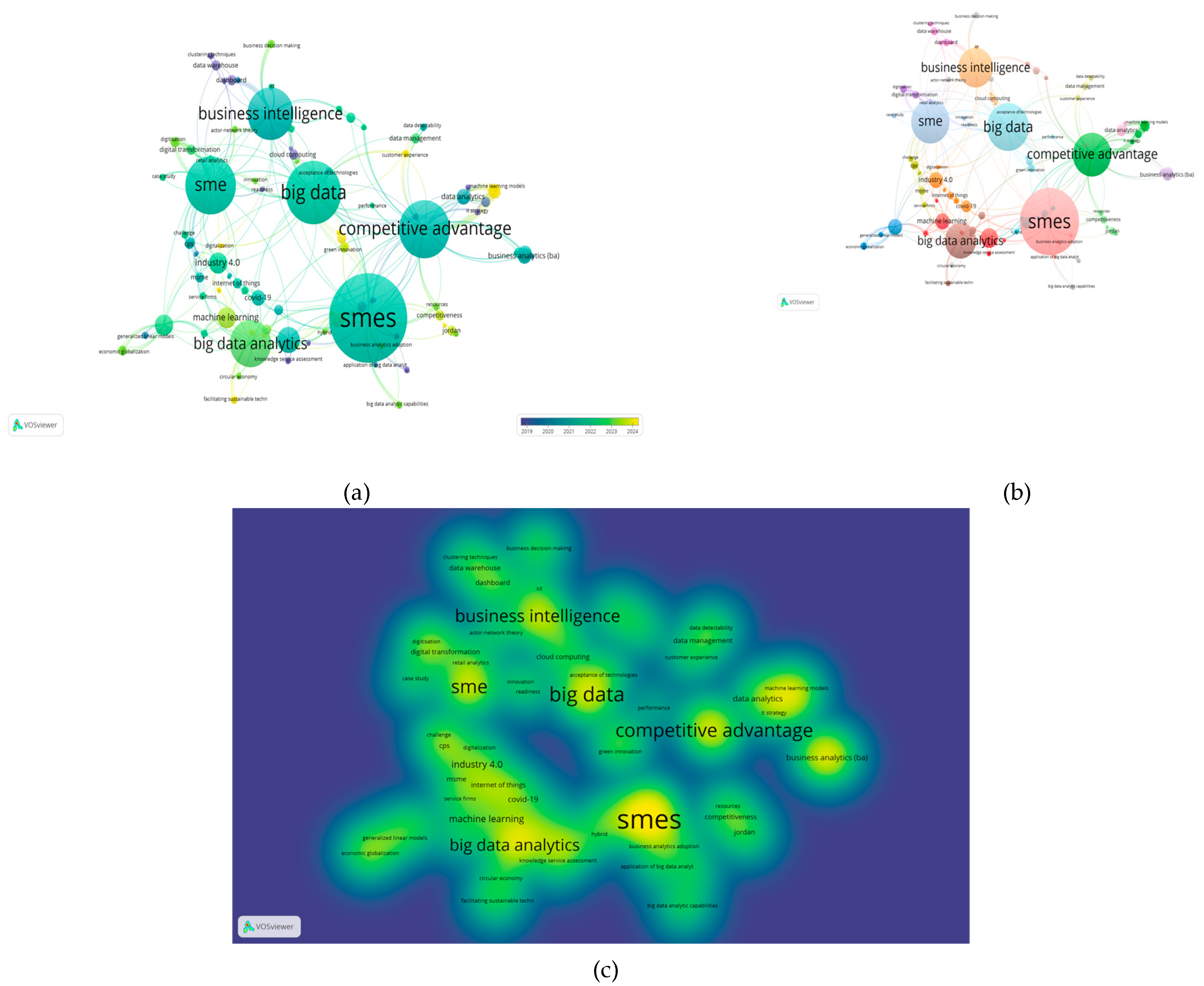
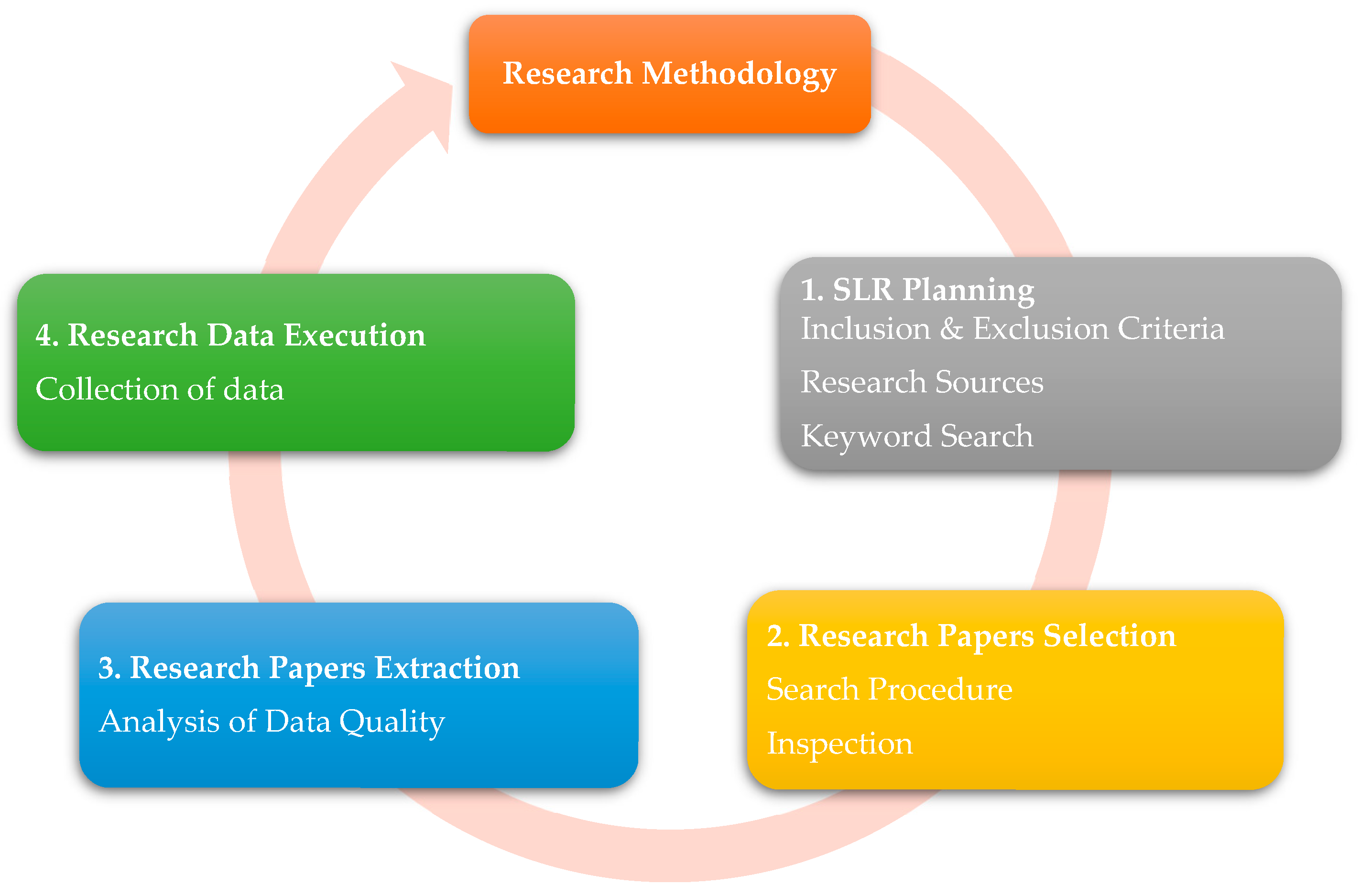
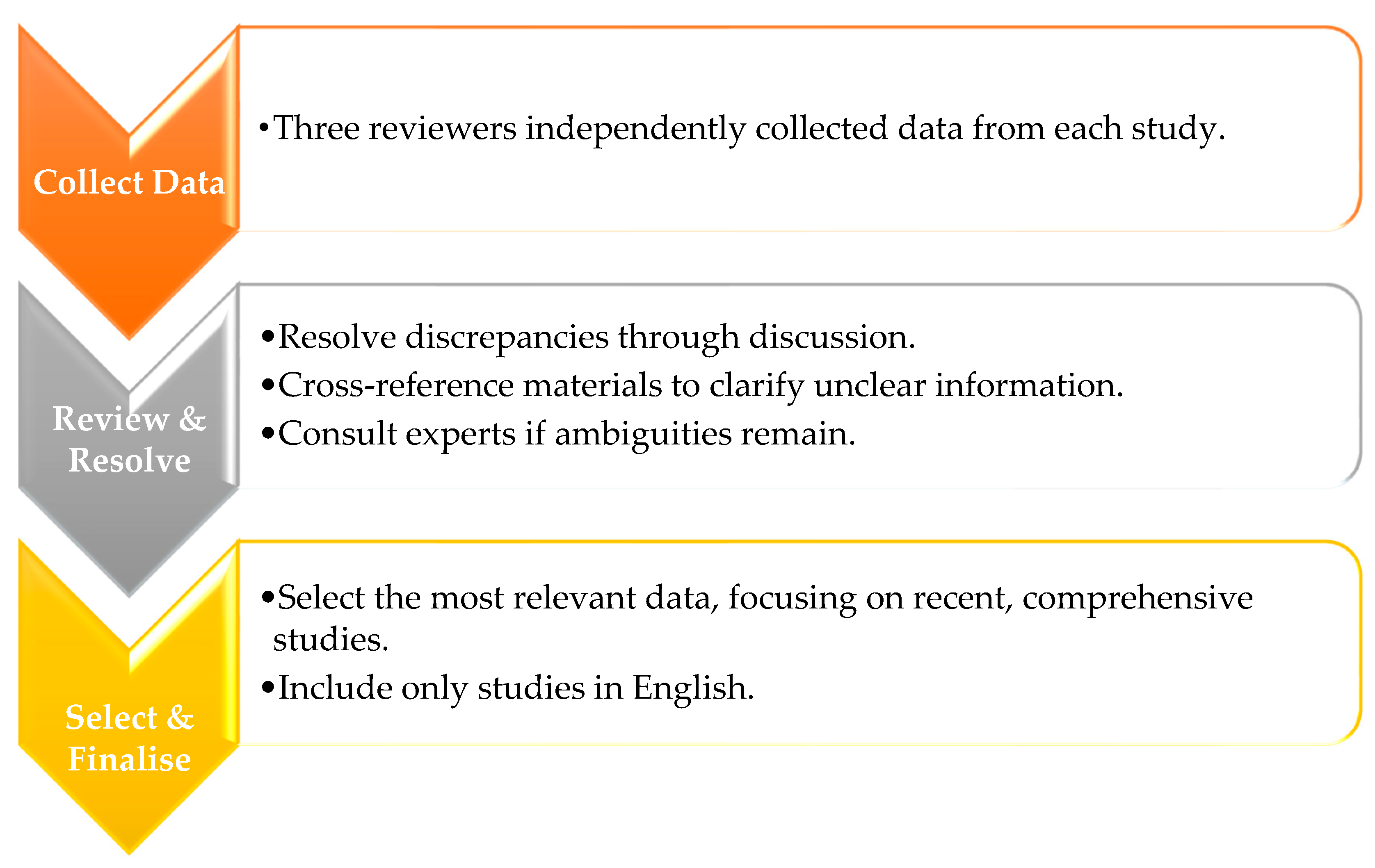
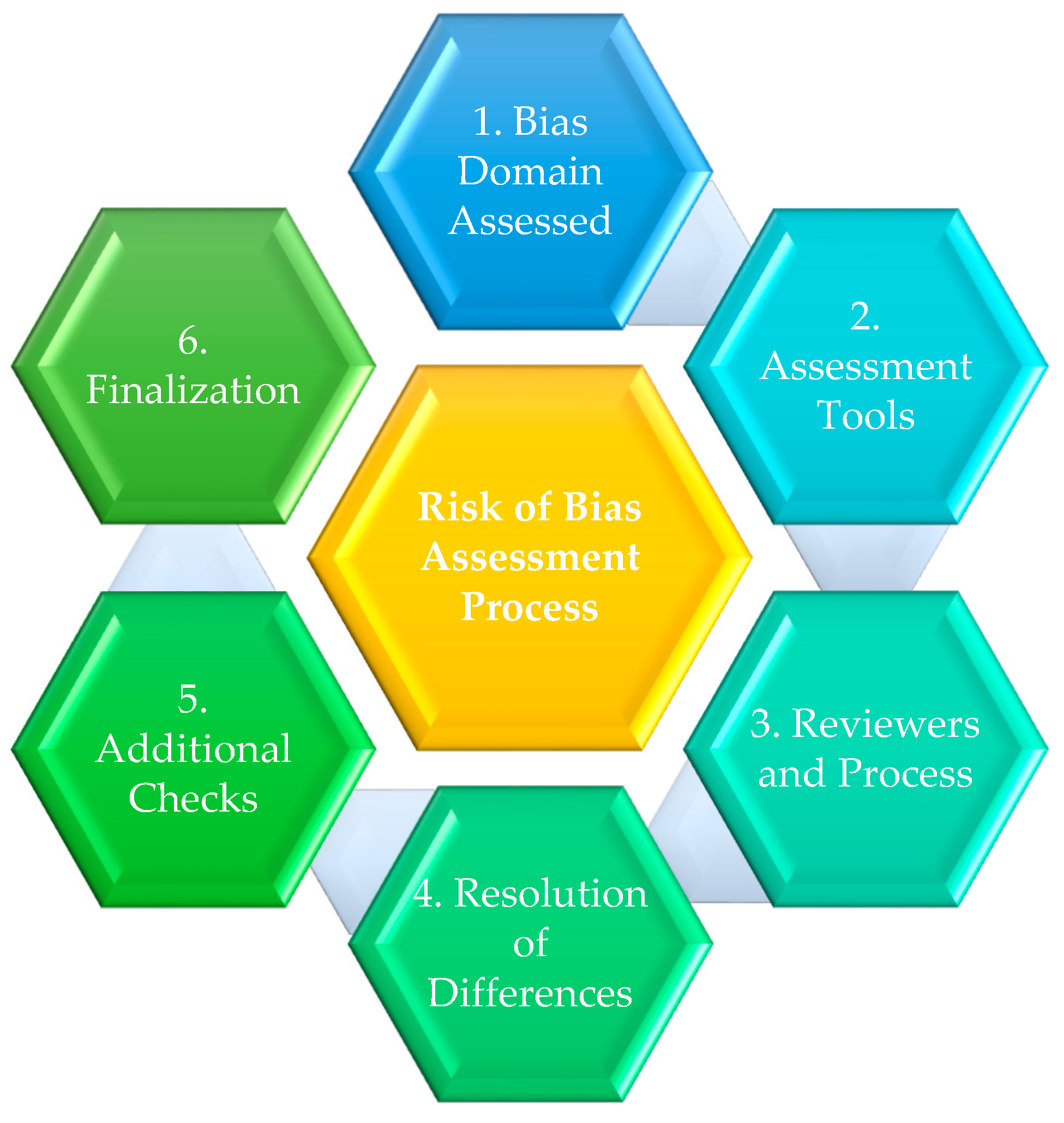
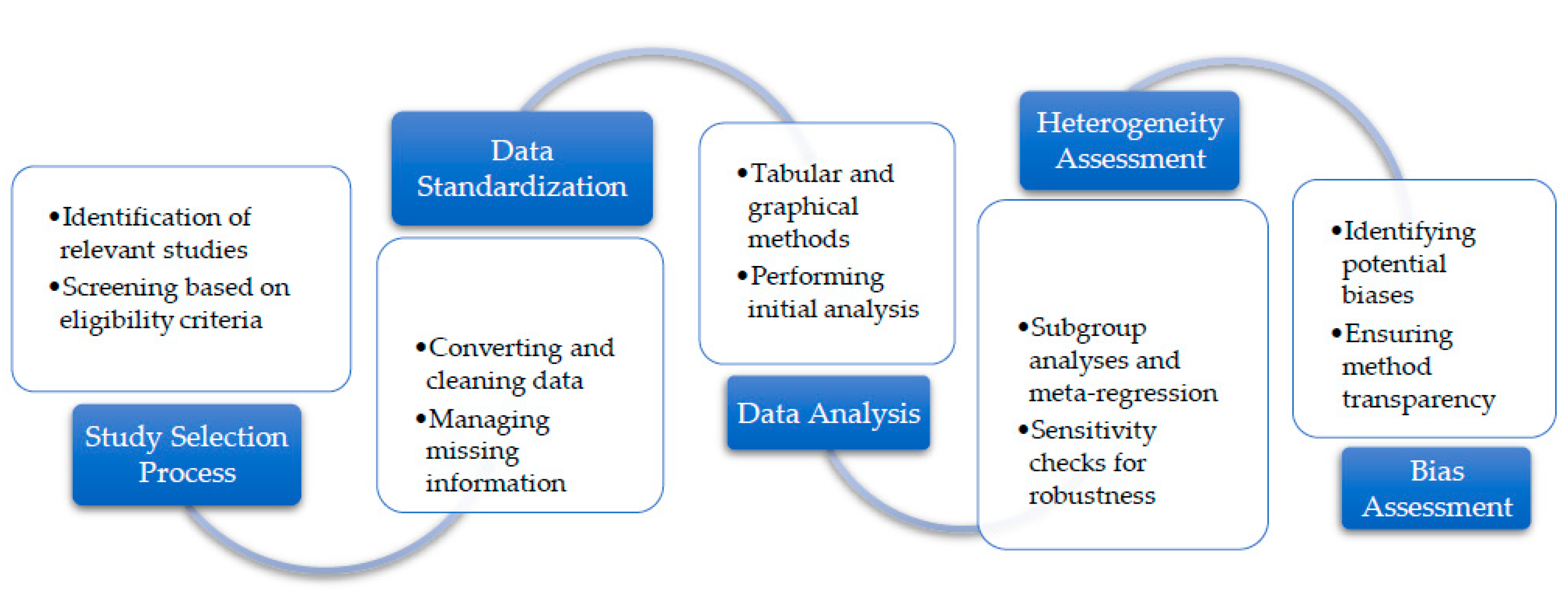
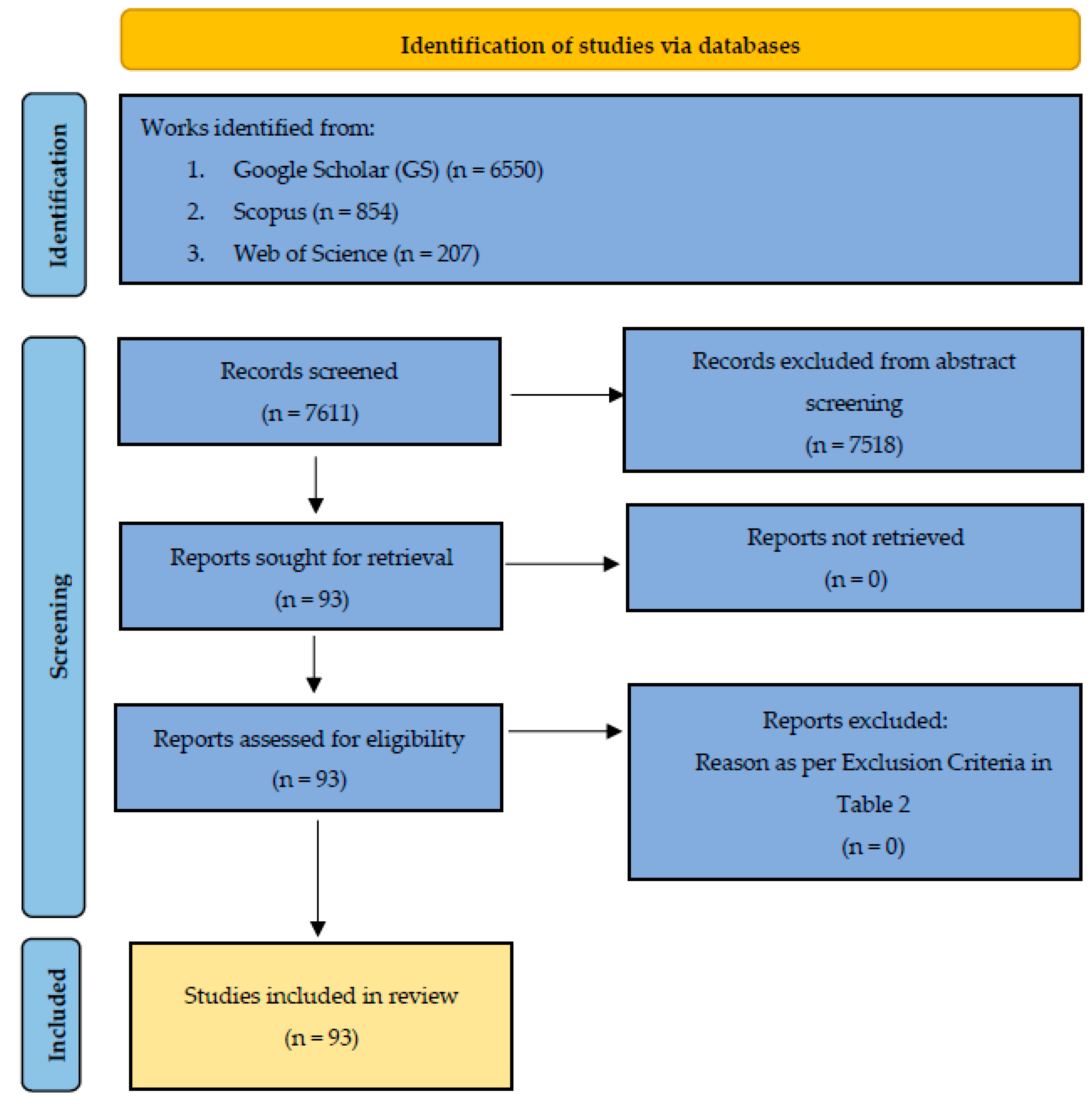
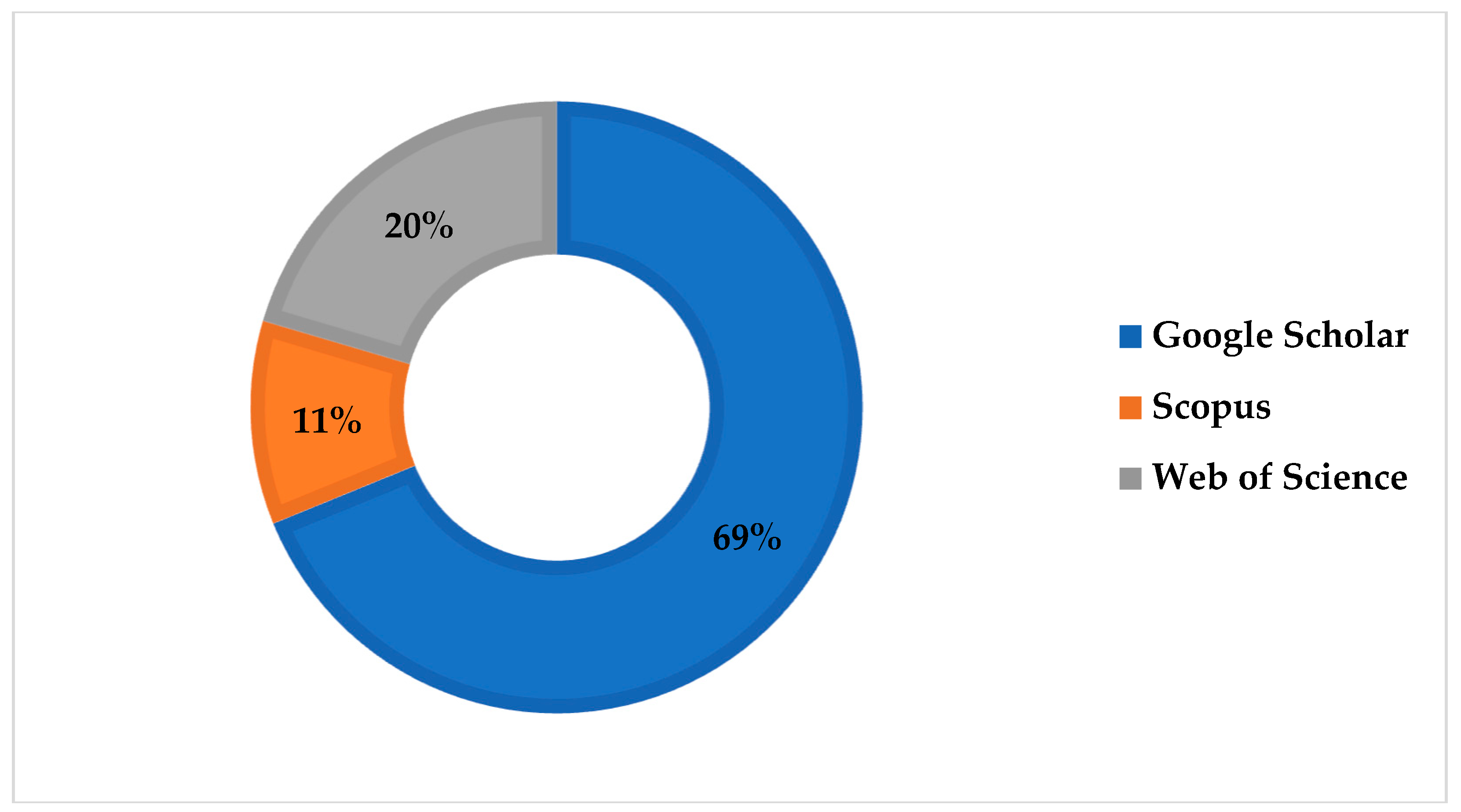
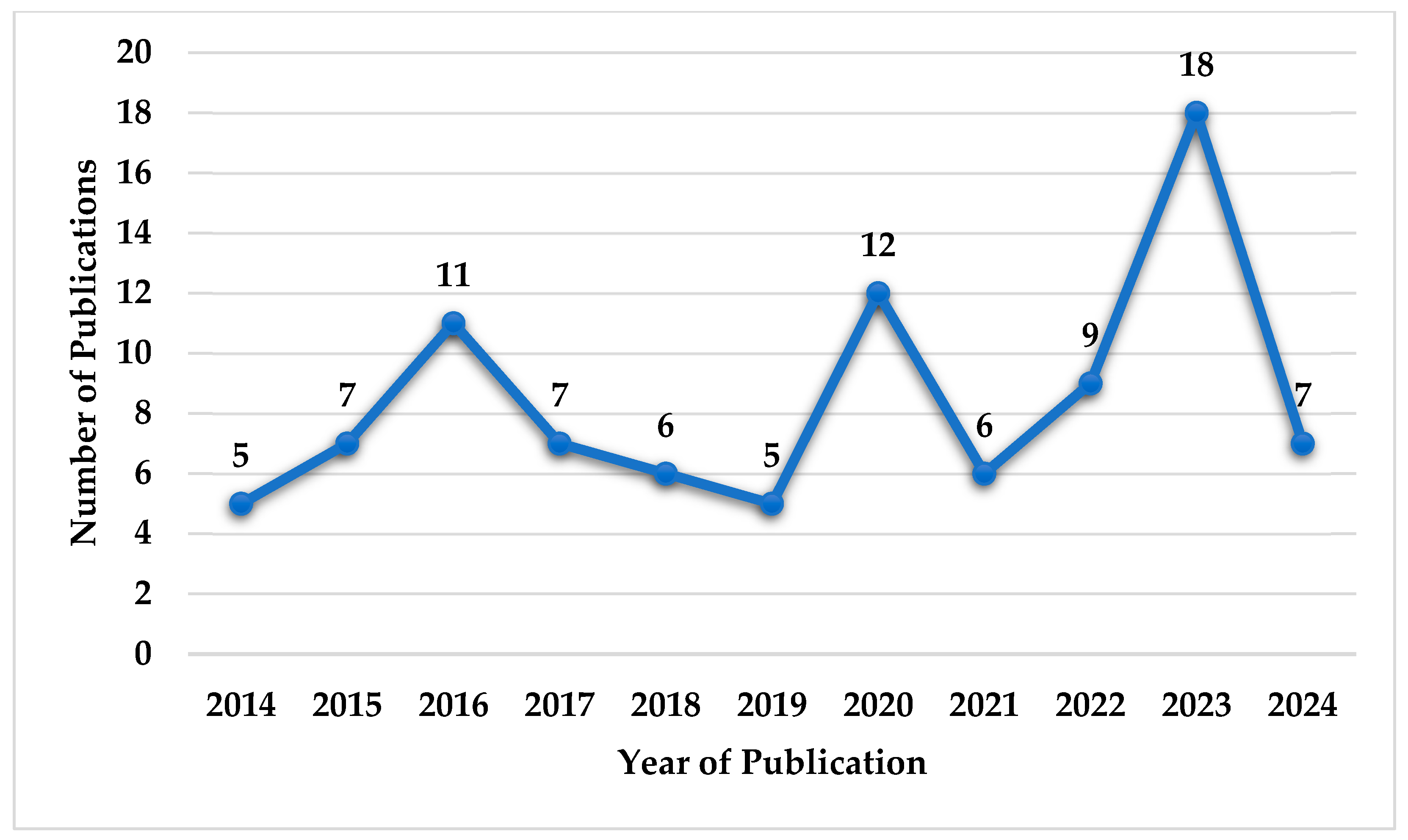
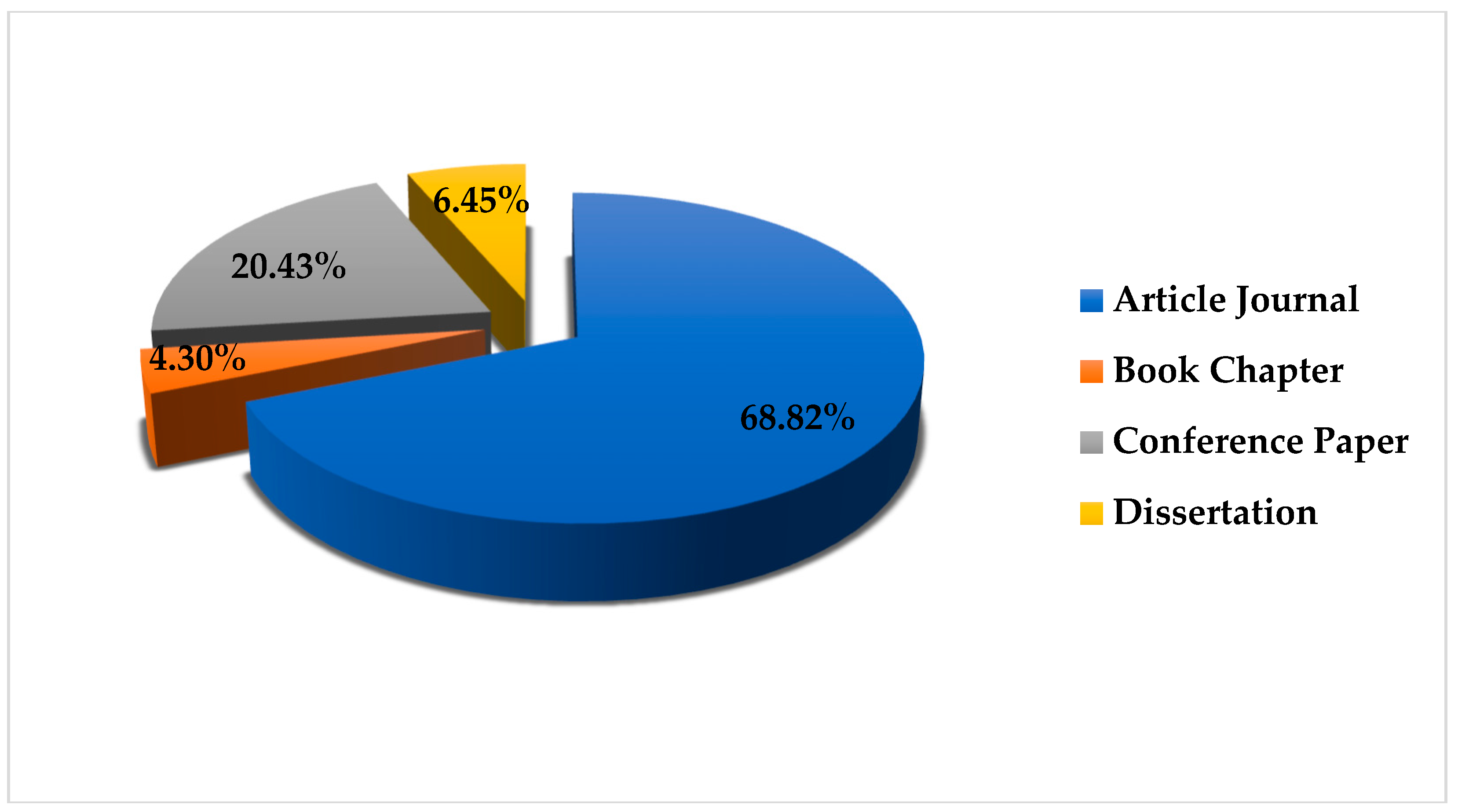
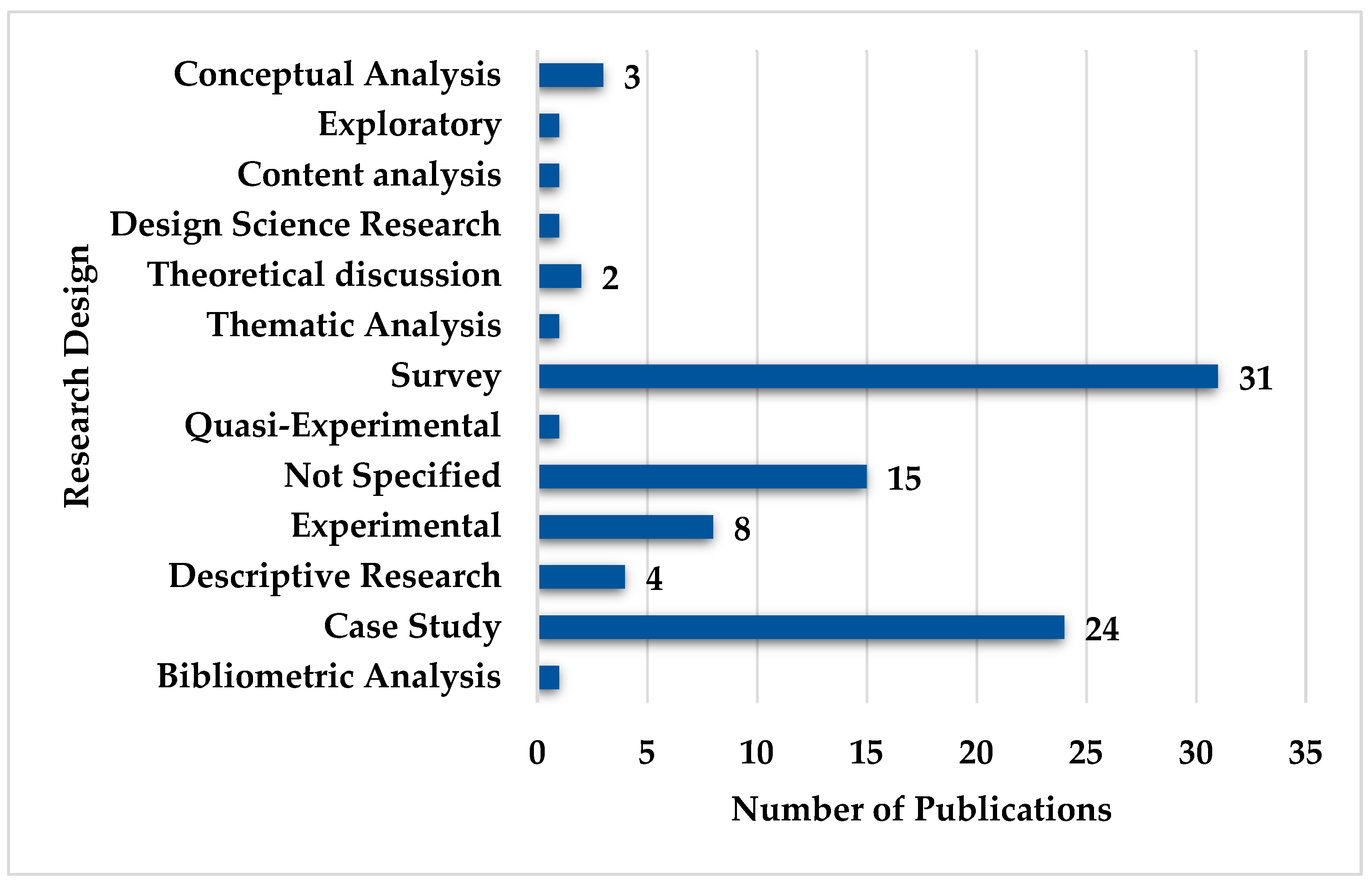
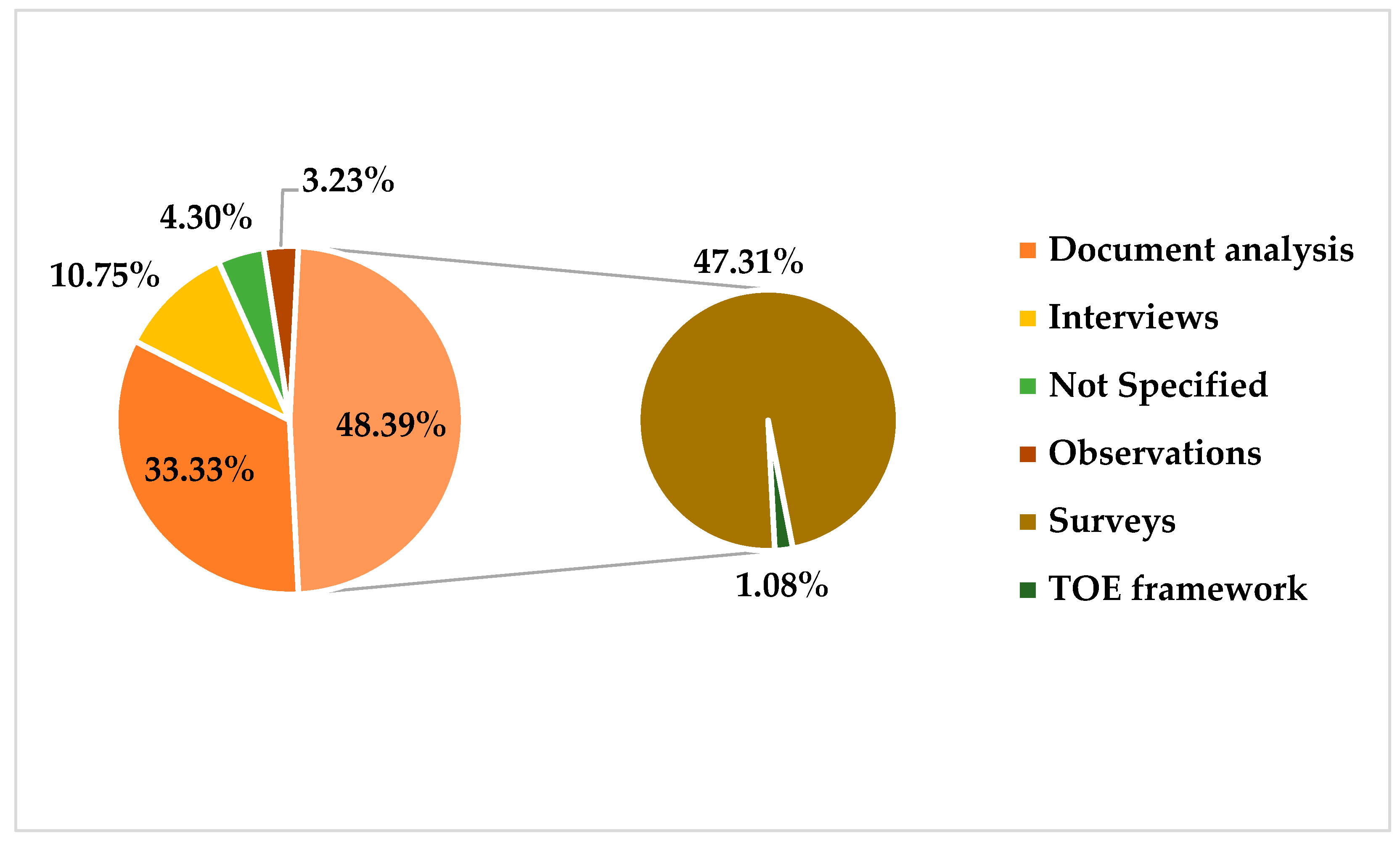
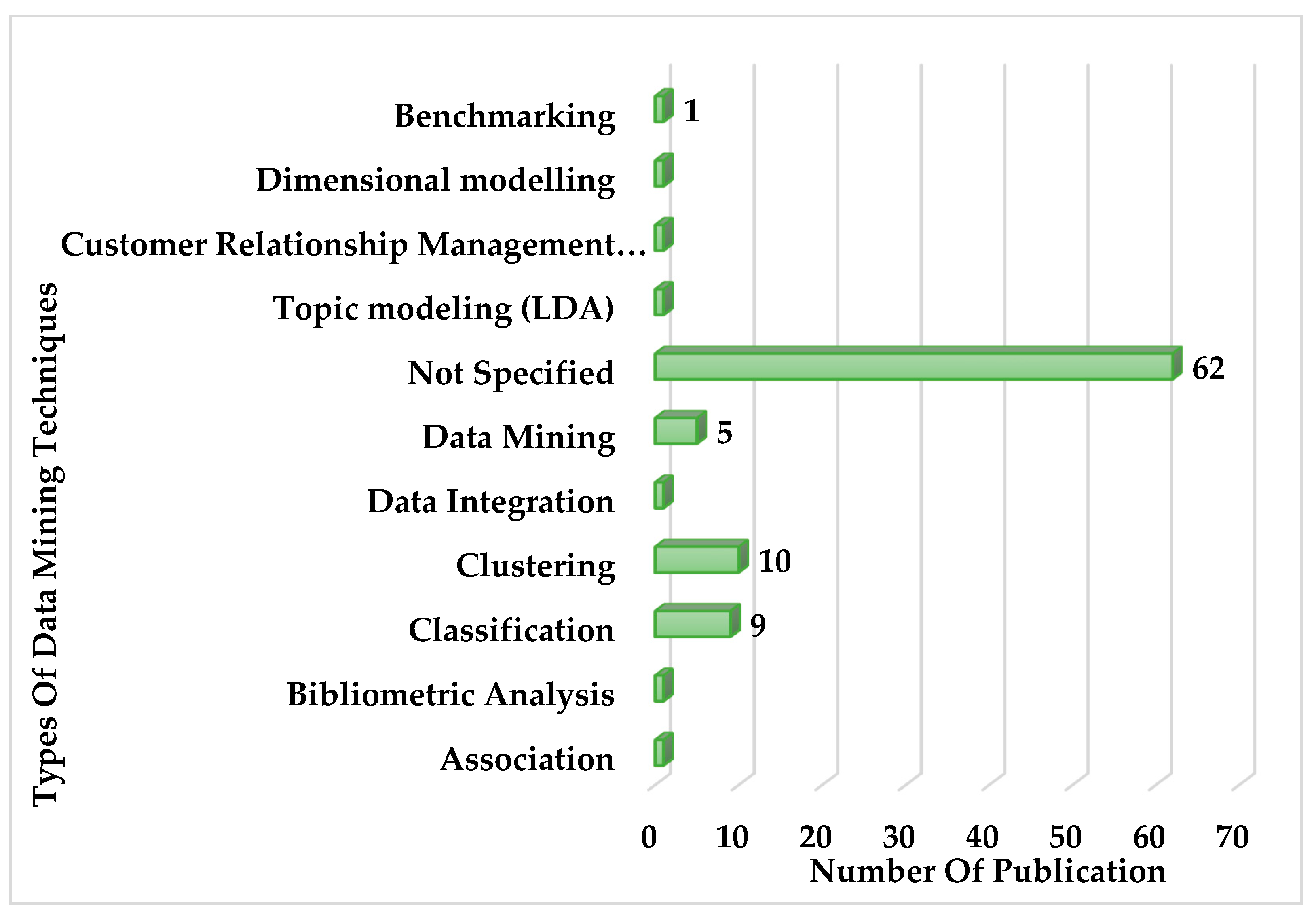
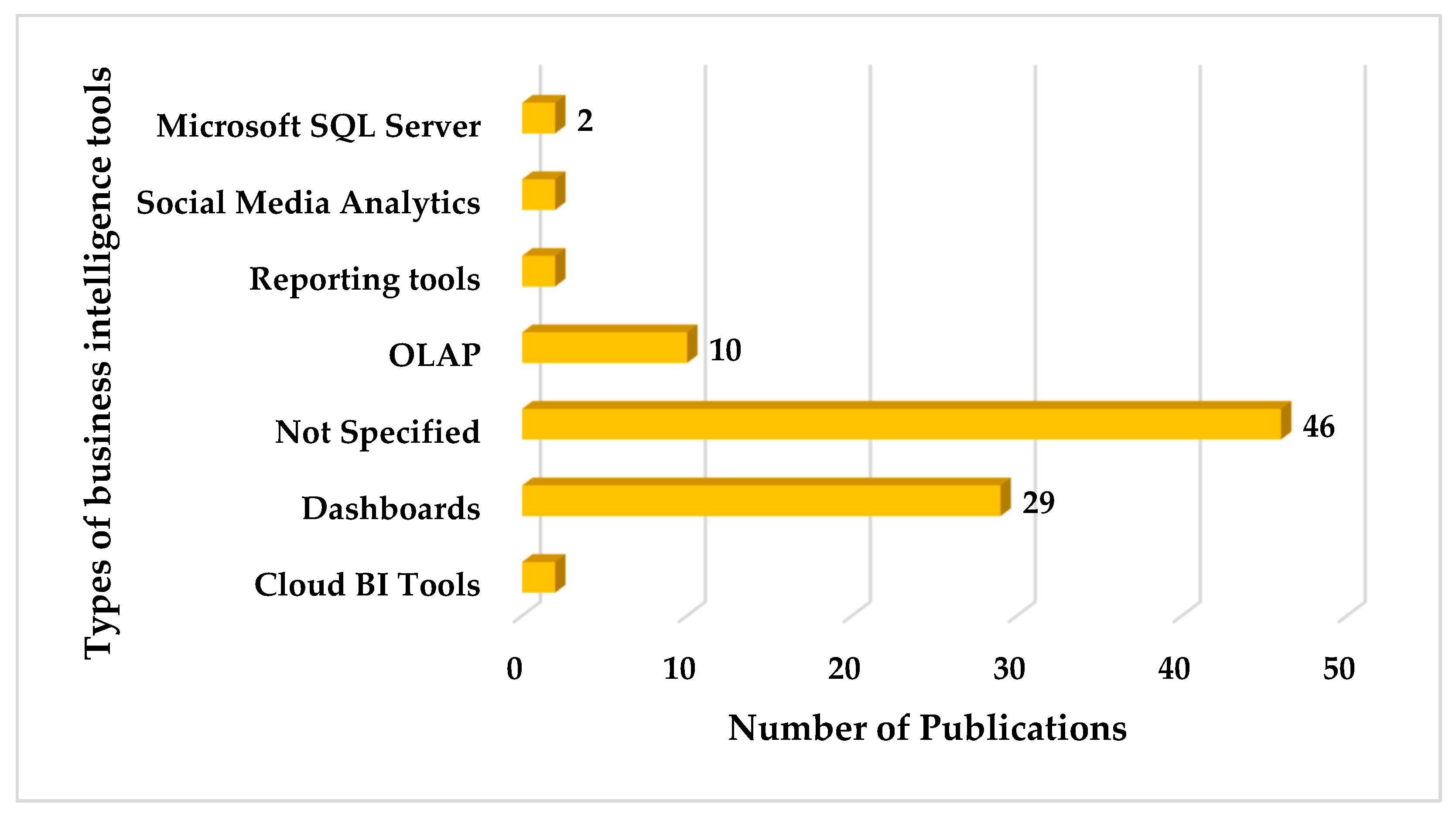
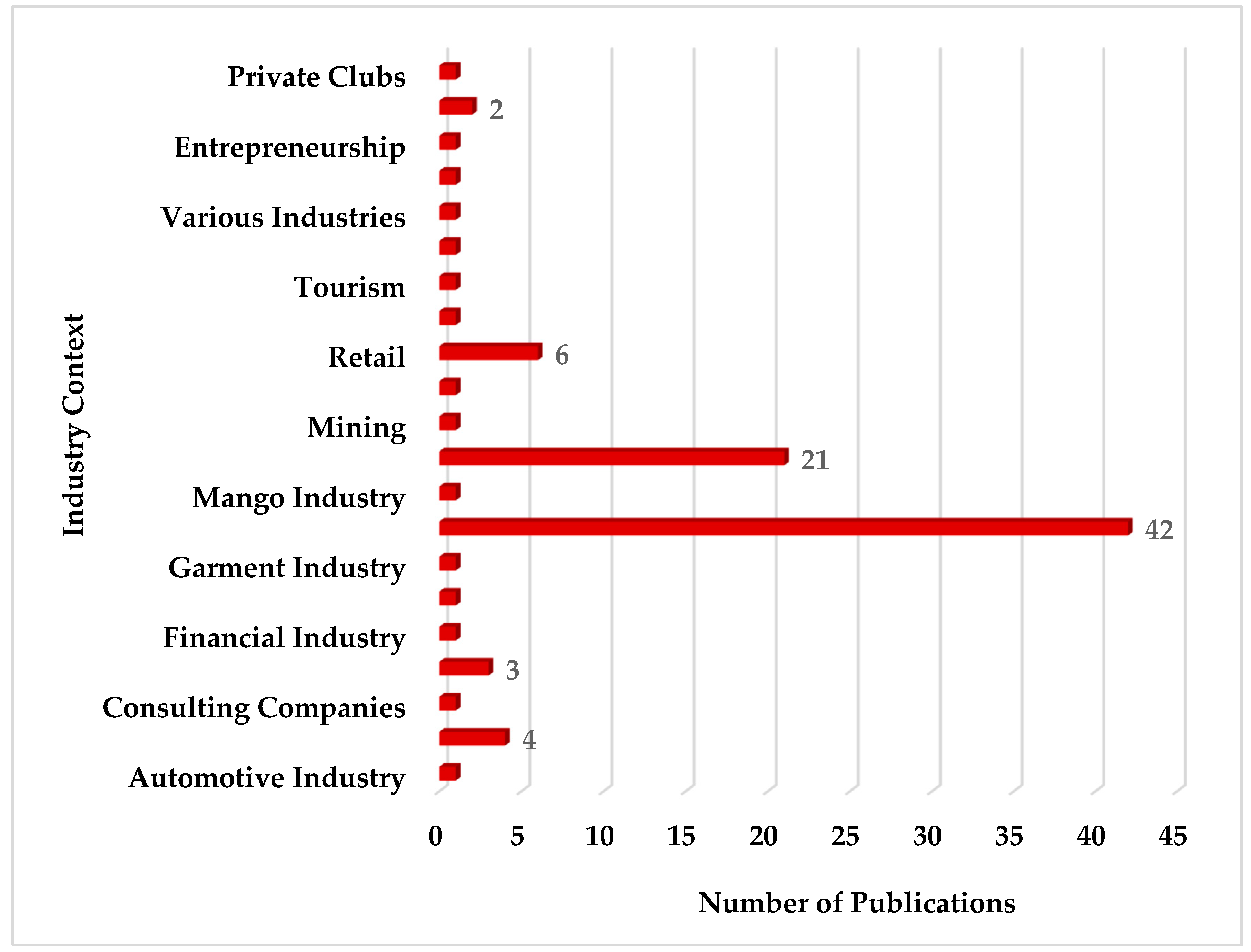
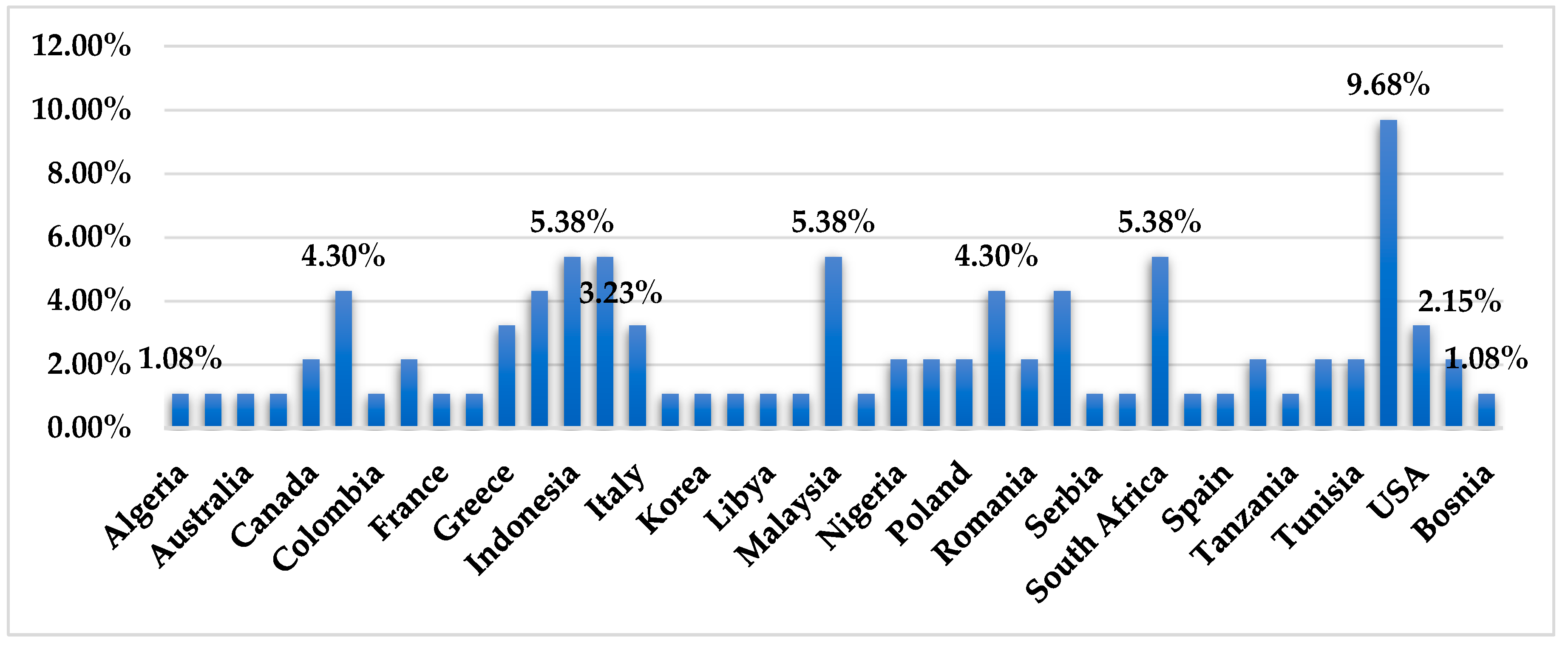
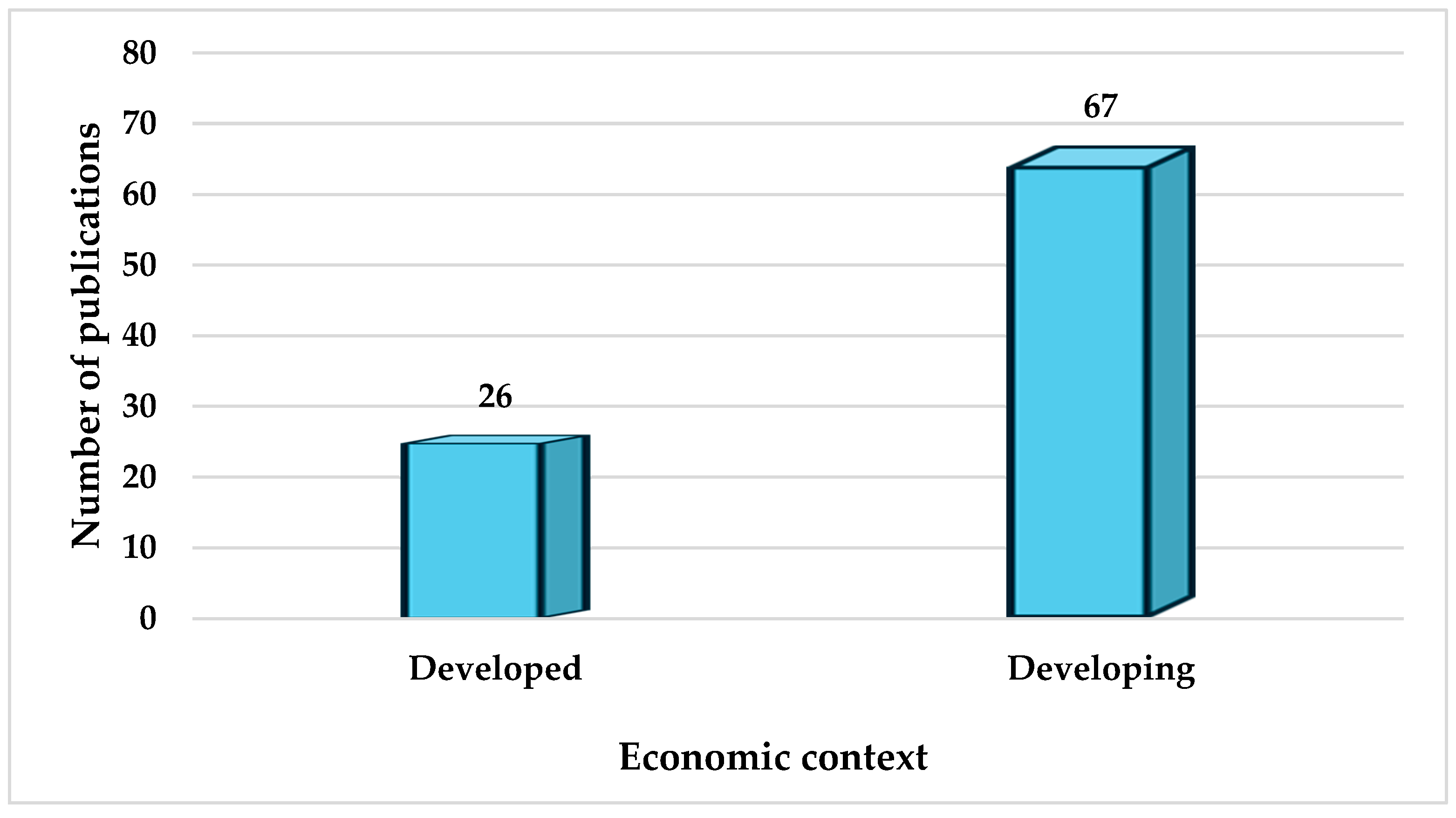
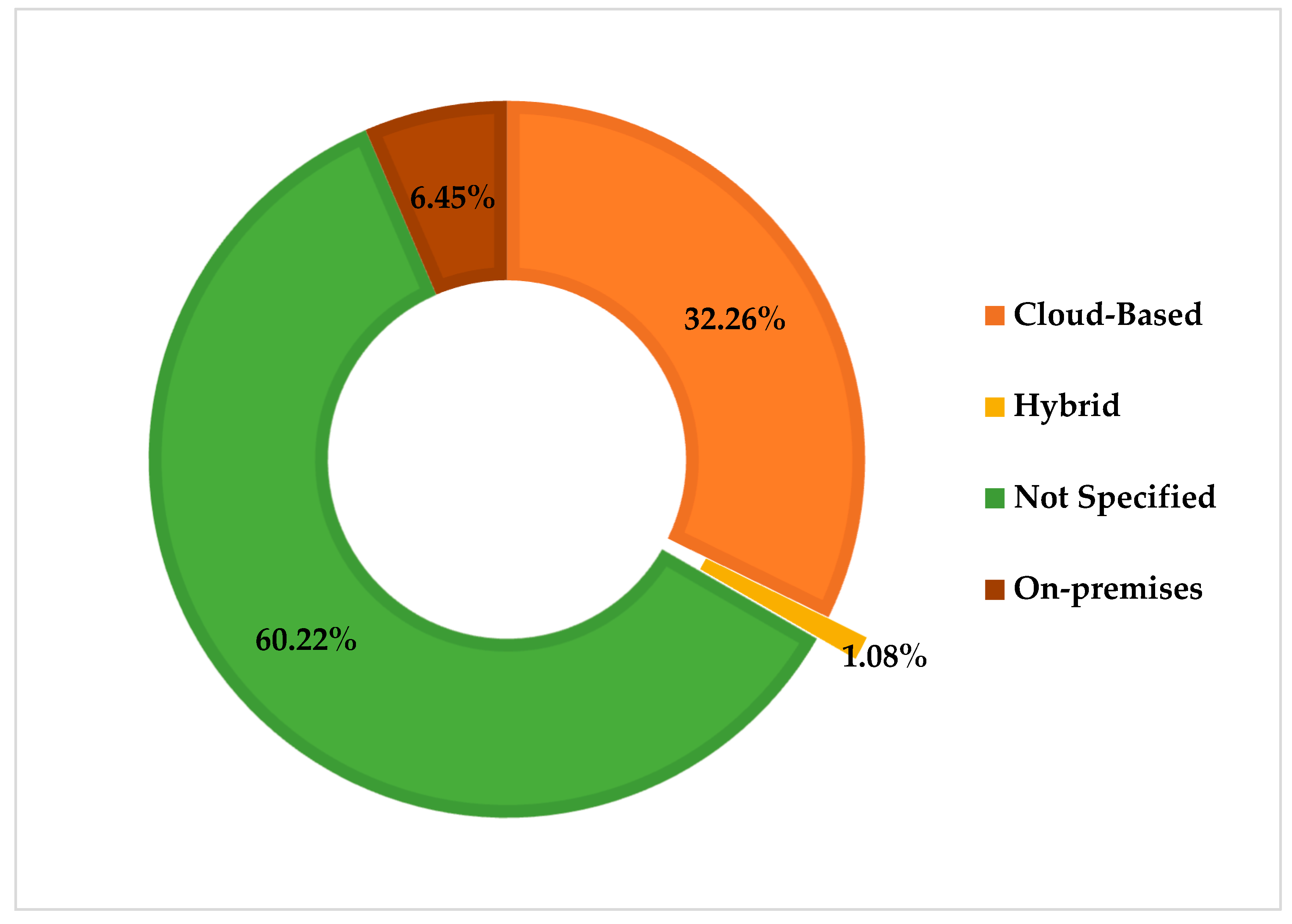
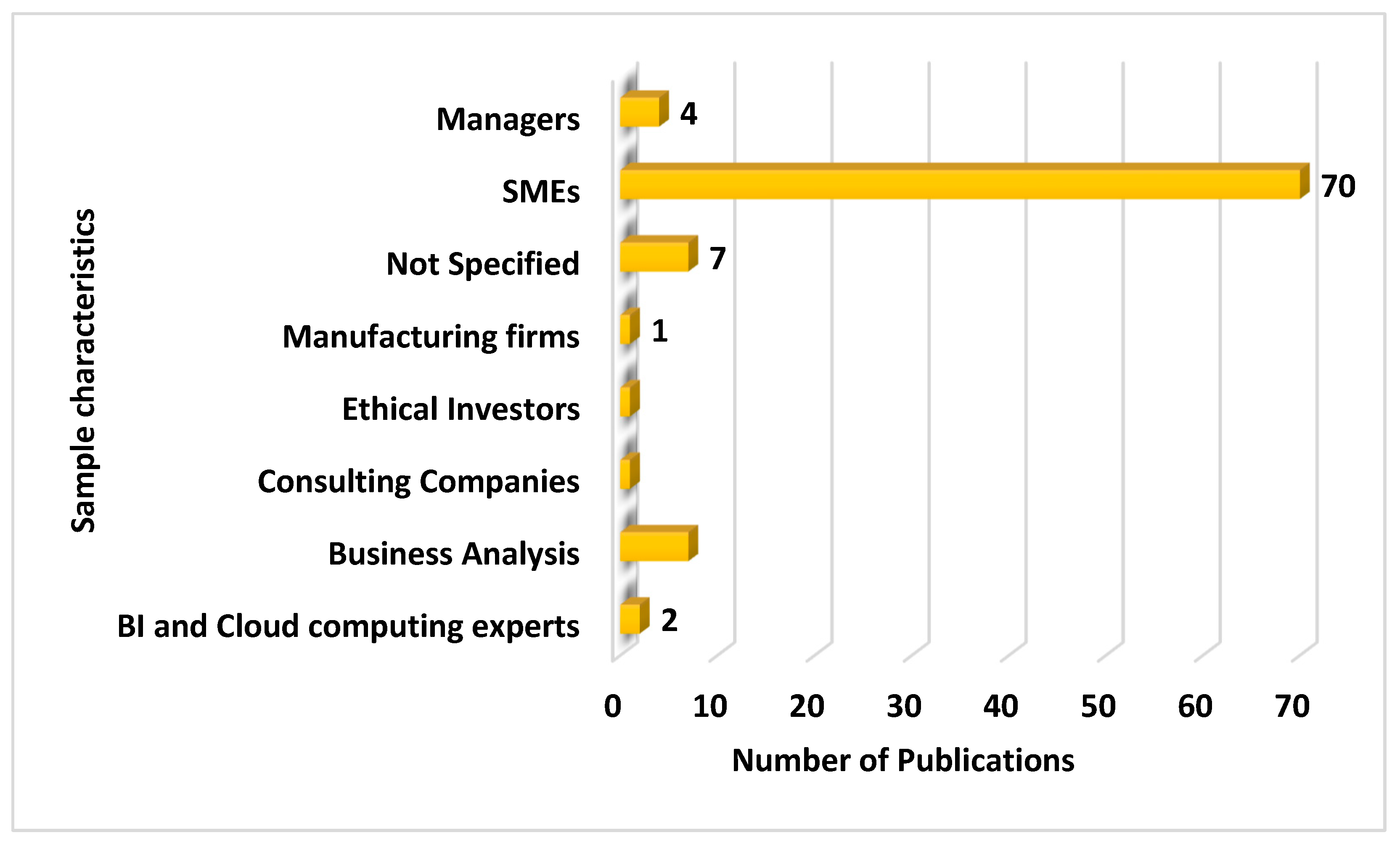
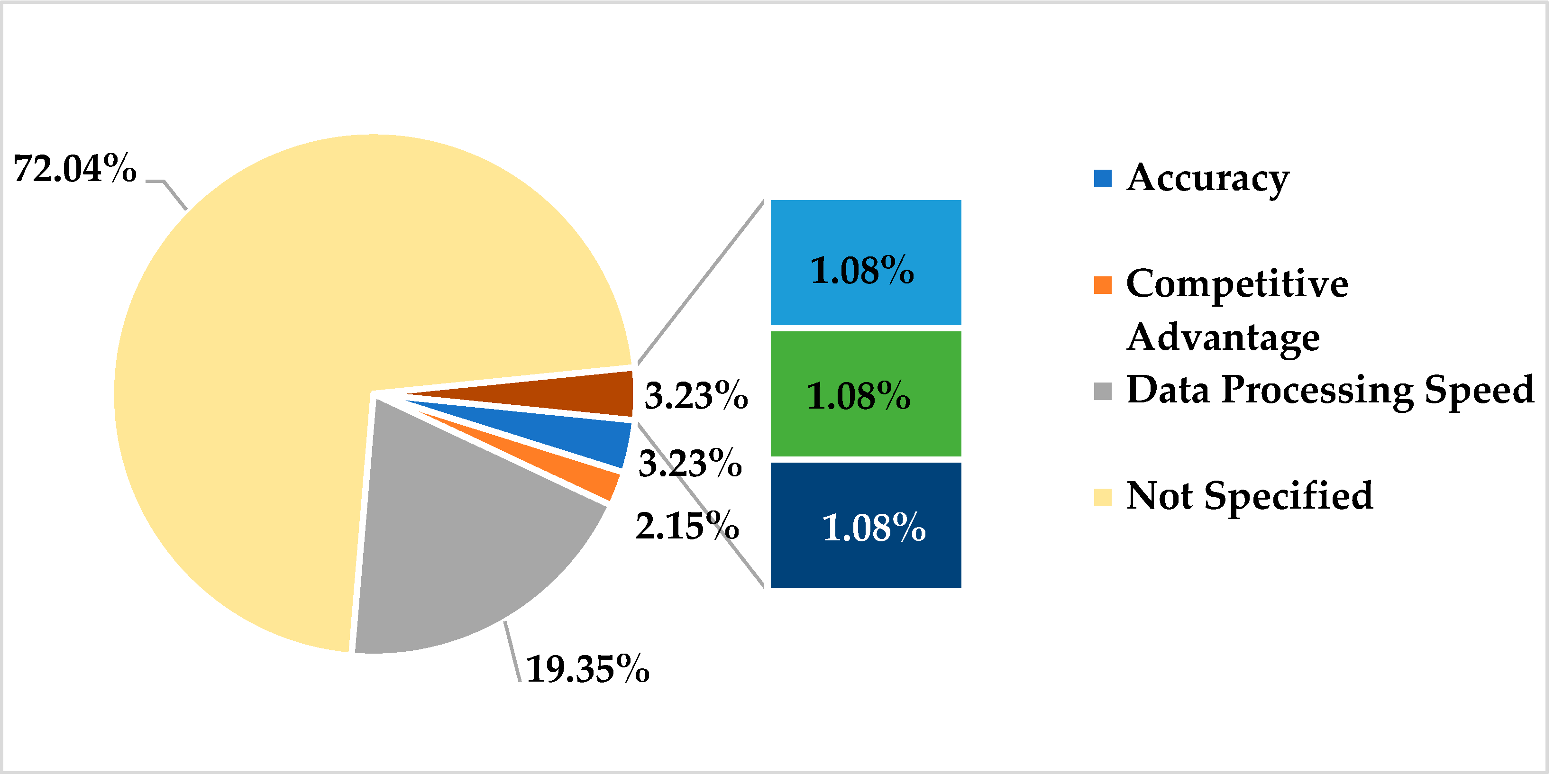
| Ref. | Cites | Year | Contribution | Pros | Cons |
|---|---|---|---|---|---|
| [20] | 15 | 2016 | Investigated structural factors impacting SME performance using structural equation modeling. | Provides valuable insights into key factors influencing SME success. | Focused on a specific geographic region, limiting broader applicability. |
| [21] | 131 | 2017 | Studied the resilience of SMEs utilizing BI in volatile markets, with a focus on competitive advantages. | Stronger market resilience, better risk management. | Requires continuous data monitoring and analysis. |
| [22] | 40 | 2017 | Investigated business intelligence review tools for SMEs to gain competitive advantages by optimizing decision-making. | Enhanced decision-making, affordable BI tools. | May lead to data overload without proper management. |
| [23] | 34 | 2018 | Investigated business intelligence as a tool for SMEs to navigate competitive pressures in saturated markets. | Strategic positioning, helps in competitive analysis. | High dependency on consistent data input. |
| [24] | 27 | 2018 | Explored a systematic review how data mining enhances SMEs' competitive advantage through better customer insights. | Improved customer targeting, cost-effective for SMEs. | Requires technical expertise not always available in SMEs. |
| [25] | 23 | 2019 | Examined how data mining can enhance SMEs' customer relationship management for sustained competitive advantage. | Better customer retention, personalized marketing. | Can lead to high costs for data storage and processing. |
| [26] | 25 | 2019 | Proposed a new model combining data mining and BI to improve SMEs' market adaptability. | Adaptive business strategies, improved market response. | Model complexity may overwhelm smaller SMEs. |
| [27] | 24 | 2020 | Examined the effectiveness of data mining in SME innovation, focusing on new product development. | Drives innovation, supports product development strategies. | Potential privacy concerns with customer data usage. |
| [28] | 10 | 2020 | Provided a comparative study of SMEs using business intelligence vs. traditional methods to gain market share. | Clear benefits in market expansion, real-time insights. | Adoption barriers in low-tech SMEs. |
| [29] | 16 | 2021 | Developed a framework for integrating data mining into SMEs' business processes to sustain competitive advantage. | Sustainable competitive advantage, scalable for growth. | Ongoing costs for data maintenance and updates. |
| [30] | 0 | 2021 | Studied the impact of business intelligence on the operational efficiency of SMEs in developing markets. | Improved efficiency, accessible BI tools for SMEs. | Limited by data quality in emerging markets. |
| [31] | 19 | 2024 | Analyzed the role of data mining in forecasting market trends for SMEs, boosting competitiveness. | Predictive capabilities, relevant to market-oriented SMEs. | High initial setup costs for data infrastructure. |
| Proposed systematic review | Evaluates the impact of business intelligence on SME performance, highlighting benefits like improved decision-making, competitive advantages, and operational efficiency. | Provides a comprehensive understanding of factors influencing BI adoption in SMEs. Identifies critical research gaps. | Limited focus on industry-specific applications and geographic limitations. | ||
| Criteria | Inclusion | Exclusion |
|---|---|---|
| Topic | Article papers focusing on applications and competitive advantages of data mining and business intelligence in SMEs performance | Article papers not focusing on appli-cations and competitive advantages of data mining and business intelligence in SMEs performance |
| Research Framework | The Articles must include research frame-work or methodology for applications and competitive advantages of data mining and business intelligence in SMEs performance | Articles must exclude research framework or methodology for appli-cations and competitive advantages of data mining and business intelligence in SMEs performance |
| Language | Must be written in English | Articles published in languages other than English |
| Period | Articles between 2014 to 2024 | Articles outside 2014 and 2024 |
| No. | Online Repository | Number of results |
|---|---|---|
| 1 | Google Scholar | 6550 |
| 2 | Web of Science | 207 |
| 3 | Scopus | 854 |
| Total | 7611 |
| Field | Description |
|---|---|
| Study characteristics | Geographic location, industry specifics, SME size, and other factors that influence the study's context. |
| Participant characteristics | Information about employees using BI tools, including their roles, level of BI literacy, and engagement with technology. |
| Intervention characteristics | Details of BI tools and data mining techniques used, integration with existing systems, and scope of application. |
| Economic factors | Financial aspects such as initial and ongoing investments, and returns on these investments. |
| External influences | Market conditions, competitive pressures, and regulatory environments affecting BI adoption. |
| Ref. | QA1 | QA2 | QA3 | QA4 | QA5 | Total | % grading |
|---|---|---|---|---|---|---|---|
| [34,43,45,46,112] | 1 | 0 | 0.5 | 0 | 1 | 2.5 | 50 |
| [40,48,49,91] | 0.5 | 0.5 | 0.5 | 0.5 | 1 | 3 | 60 |
| [37,39,57,61,63,71,76,92,95,116] | 1 | 0.5 | 0.5 | 1 | 0.5 | 3.5 | 70 |
| [38,41,42,44,50,60,80,84,87,88,96,99,104,109,111,114,115,117,118,124] | 1 | 0.5 | 1 | 1 | 0.5 | 4 | 80 |
| [35,36,52,56,59,66,70,74,75,83,85,86,89,90,94,97,105,107,110,113,119,121] | 1 | 1 | 1 | 1 | 0.5 | 4.5 | 90 |
| [47,51,53,54,55,58,62,64,65,67,68,69,72,73,77,78,79,81,82,93,98,100,101,102,103,106,108,120,122,123,125,126] | 1 | 1 | 1 | 1 | 1 | 5 | 100 |
| Published Year | Book Chapter | Conference Paper | Dissertation | Journal Article |
|---|---|---|---|---|
| 2014 | 1 | 1 | 0 | 3 |
| 2015 | 0 | 4 | 0 | 3 |
| 2016 | 0 | 4 | 0 | 7 |
| 2017 | 0 | 2 | 0 | 5 |
| 2018 | 0 | 2 | 1 | 3 |
| 2019 | 0 | 2 | 0 | 3 |
| 2020 | 0 | 0 | 0 | 12 |
| 2021 | 0 | 0 | 3 | 3 |
| 2022 | 0 | 2 | 0 | 7 |
| 2023 | 1 | 1 | 3 | 14 |
| 2024 | 2 | 1 | 2 | 13 |
| Outcome | Certainty of Evidence | Effect Estimate | Interpretation |
|---|---|---|---|
| Operational Efficiency | Moderate | Mean difference of 12% improvement in process completion times | BI tools likely enhance operational efficiency in SMEs by reducing process times and errors. |
| Financial Performance | High | 15% increase in revenue on average | Strong evidence supports that BI adoption leads to significant financial gains for SMEs. |
| Strategic Decision-Making | Moderate | Risk ratio of 1.8 for improved decision-making quality | BI tools probably improve strategic decision-making in SMEs, enhancing decision speed and accuracy. |
| Customer Relationship Management | Moderate | 10% increase in customer retention rates | Data mining enhances customer relationship management, improving retention and personalized marketing. |
| Market Trend Forecasting | Low | Hazard ratio of 1.5 for faster market adaptation | Evidence suggests that data mining helps SMEs better forecast and adapt to market trends, though with variability. |
| Innovation and Product Development | Moderate | Mean difference of 8% in new product success rates | BI tools likely contribute to innovation and successful product development in SMEs. |
| Risk Management & Resilience | High | 20% improvement in risk management outcomes | Strong evidence indicates that BI enhances risk management and resilience in volatile markets. |
| Ref. | Year | Research Focus | Methodology | Key Outcomes | Challenges Identified | Recommendations |
|---|---|---|---|---|---|---|
| [34] | 2017 | BI systems in SMEs | Literature review, case studies | Strategic alignment, cloud BI benefits | BI complexity, cost, skills gap | Simplify BI tools, enhance training, adopt cloud BI |
| [35] | 2023 | Role of BI in SMEs | Bibliometric analysis | BI improves decision-making, competitive edge | Complexity, cost concerns | Develop BI and TOE framework integration |
| [36] | 2022 | Data mining's impact in Saudi SMEs | Quantitative survey, SEM | Enhances competitive advantage via training | Personnel selection complexit | Advance data mining techniques, improve training |
| [37] | 2019 | Marketing intelligence impact on SMEs | Surveys | Boosts competitive advantage | Limited tool awareness, data privacy | Increase marketing intelligence tool training |
| [38] | 2017 | KM and CI in Malawian SMEs | Surveys | Improves decision-making, efficiency | Information protection, knowledge tacitness | Formalize KM and CI processes, technology adoption |
| [39] | 2020 | Data mining applications in Italian SMEs | Case studies, interviews, surveys | Improved decision-making, operational efficiency. | Resource limitations, change resistance | Promote data mining benefits, facilitate adoption |
| [40] | 2020 | Economic impact of data mining in SMEs | Literature review. | Potential for improved operations | Resource-intensive nature, data security | Start with basic tools, gradually adopt advanced BI |
| [41] | 2020 | Barriers in BDA adoption by SMEs | Surveys | BDA improves decision-making, competitive edge | Skilled personnel shortage, BDA tool complexity | Develop cost-effective BDA solutions for SMEs |
| [42] | 2014 | Web support system for BI in SMEs. | Proposed and tested a web-based BI framework. | Cost-effective, user-friendly, improves decision-making. | High costs and complexity of traditional BI tools. | Develop simple, mobile-friendly BI systems. |
| [43] | 2014 | Data warehouse and mining in steel enterprises. | Three-tier architecture using SQL Server. | Enhanced data integration and decision-making. | Data integration and system scalability. | Use SQL Server, apply predictive algorithms, ensure flexibility. |
| [44] | 2016 | BI for SMEs | Literature review and case study | Improved decision-making and competitiveness | High costs, integration issues | Use affordable, tailored BI solutions and train users |
| [45] | 2015 | Adoption of Business Intelligence (BI) in SMEs | Literature review and survey of SMEs | BI enhances decision-making and operational efficiency in SMEs | Lack of awareness, high costs, and technical complexity | Increase training, reduce costs, and simplify BI tools for SMEs |
| [46] | 2016 | BI adoption in SMEs | Case study | Improved decision-making, efficiency | Technical skill gaps, high costs | Use affordable BI tools, seek funding |
| [47] | 2015 | BI solutions for Romanian SMEs in network settings. | Literature review and case study with QlikView. | Improved decision-making, productivity, and cost reduction. | Data volume and integration issues. | Use BI tools like QlikView; leverage network resources |
| [48] | 2016 | Role of data mining in SMEs. | Surveys and data analysis. | Improved decision-making. | Skill gaps in data handling. | Train staff, simplify tools. |
| [49] | 2016 | Application of business analytics in SMEs | Case study and literature review | Enhanced decision-making and operational efficiency | High costs and complexity of implementation for SMEs | Focus on cost-effective, scalable solutions |
| [50] | 2015 | Adoption of ERP systems by SMEs during crisis | Survey of 37 SMEs in Western Macedonia using structured questionnaires | Identified key advantages like data integration and decision support | High costs of setup and training; underutilization of BI features | Enhance training and BI feature utilization; focus on cost reduction |
| [51] | 2014 | Adoption of Business Intelligence (BI) in SMEs in Zimbabwe | Descriptive research through documentary analysis of existing literature. | BI as a strategic asset can significantly enhance decision-making and competitiveness in SMEs. | Lack of IT infrastructure, high costs, and low awareness among SMEs. | SMEs should adopt BI incrementally, align BI with business strategy, and invest in staff training. |
| [52] | 2015 | Implementation of BI for SMEs | Model-driven approach | Enhanced BI solutions for SMEs | High costs and complexity | Simplify DW implementation with automation to cut costs. |
| [53] | 2014 | Business Intelligence and Analytics in Organizations | Literature review and survey of 20 organizations | BI improves decision-making, efficiency, and competitiveness | Limited use of BI due to lack of skills and awareness | Enhance BI training, align BI with business goals, and improve data quality |
| [54] | 2016 | BI adoption in Lebanese SMEs | Quantitative survey from 56 SMEs | Quality BI and positive attitudes are crucial. | Resistance from management | Improve culture and train management |
| [55] | 2020 | BI in organizations for decision-making and competitiveness. | Literature review, interviews with 20 organizations.. | Improved decisions, processes, performance. | Limited BI use in small firms. | Increase BI training, define BI strategies, boost leadership support. |
| [56] | 2019 | Implementation of BI in SMEs | Case study using Pentaho BI platform | Demonstrated feasibility of implementing Pentaho in SMEs | Complexity in setup; need for technical knowledge | Use open-source BI; ensure technical support, internal or external |
| [57] | 2018 | Business Intelligence (BI) adoption in SMEs | Case study on SMEs using BI tools | Improved decision-making and competitiveness | Limited resources and technical expertise in SMEs | Enhance training and support for SMEs on BI tools |
| [58] | 2024 | BDA adoption by SMEs | Surveys; SEM analysis | BDA boosts performance | Resource limits, security issues | Enhance training, management support |
| [59] | 2022 | Big Data Analytics in SMEs | PLS-SEM on survey data from 242 SMEs | BDAC boosts performance via business models; COVID-19 amplifies impact | Limited BDAC understanding; poor alignment | Align BDAC with business models; adapt in crises |
| [60] | 2023 | BI adoption in SMEs for competitive advantage | Conceptual framework using DOI and ANT theories | Developed a holistic framework for BI adoption in SMEs | Low BI adoption, especially in developing countries | Promote equal importance of all actors in BI adoption |
| [61] | 2024 | BI adoption in SMEs as a competitive strategy | Guided by Porter's Five Forces Model | Competitive edge through informed decisions | Lack of funding, managerial support, and expertise | Invest in BI, training, further research |
| [62] | 2023 | Identify success factors for BI in SMEs | PLS-SEM on survey data from 165 SMEs in Lagos | Key factors: knowledge management, tech orientation, market intelligence | Lack of management support, planning, and resources | Boost management support, invest in tech, focus on key success factors |
| [63] | 2023 | BI for competitive advantage in SMMEs | Qualitative study with 12 respondents from 5 areas, analyzed with Atlas.ti. | BI enhances decision-making and competitiveness. | Lack of support, funding, training, and commitment. | Boost support, funding, skills, and training for BI adoption. |
| [64] | 2024 | Factors for competitive advantage | Content analysis, F-TOPSIS | Ranked 5 criteria: CRM, marketing, organization, product image | Prioritizing key sub-criteria | Improve customer interaction, feedback, and support |
| [65] | 2023 | Success factors for BDA in SMEs | Literature review of existing studies on BDA in SMEs | Key factors: tech capability, support, data quality | Resource limits, lack of skills, privacy issues | Train staff, gain management support, invest in tech |
| [66] | 2023 | Role of competitive intelligence in SMEs | Survey of 150 SMEs, SEM analysis | Social media boosts all competitive intelligence stages | Low use of social media analytics in SMEs | Promote social media analytics adoption |
| [67] | 2022 | Using social media analytics to boost competitive intelligence in SMEs. | Survey of 140 SMEs, structural equation modeling. | Positive impact on competitive intelligence. | Limited use of analytics in SMEs. | Promote analytics adoption in SMEs |
| [68] | 2021 | Impact of BIS on competitive advantage in Jordanian banks, moderated by EM. | Survey of 300 respondents, PLS-SEM analysis. | BIS boosts competitive advantage; EM enhances this effect. | Complex BIS data; limited research in banking context. | Focus on EM to maximize BIS benefits. |
| [69] | 2024 | Business analytics for competitive advantage | Literature review, content analysis | Enhances decision-making and efficiency | Data issues, skills gap | Improve data skills, privacy measures |
| [70] | 2023 | Exploring the use of BI in organizations | Literature review and analysis of BI maturity | BI enhances decision-making and business performance | Limited use of advanced BI models; internal focus | Improve BI adoption with leadership support and training |
| [71] | 2018 | Business Intelligence in SMEs | Survey with 101 filled questionnaires | SMEs acknowledge BI's benefits but lack implementation, use basic systems like ERP, CRM. | Financial limits, lack of BI knowledge, undefined KPIs. | Implement tailored BI systems to enhance decision-making and strategic planning. |
| [72] | 2017 | BI System Efficiency in SMEs | Quantitative survey analysis | Environmental factors key to BI efficiency. SMEs underuse BI. | Lack of resources, expertise, and strategic planning. | Focus on environmental factors and expert insights to improve BI use. |
| [73] | 2020 | Impact of BIS on SME performance | Survey, 181 SMEs; PLS-SEM analysis | Positive BIS influence on performance, especially in marketing, sales, and management. | Lack of data on BIS impact in procurement. | Enhance BIS use in key business areas to boost performance. |
| [74] | 2020 | BI Acceptance by SMEs in Tshwane | Survey, 161 SMEs; multinomial logistic regression | Technological, organizational, environmental factors drive BI acceptance. | Resource and knowledge limitations. | Improve resource allocation and training for BI adoption. |
| [75] | 2018 | Big Data in SME Management | Participatory action research, 2014-2017 | Big Data reshaped strategy, improved products and CRM. | Limited financial and technical resources. | Integrate Big Data into strategic planning and tools. |
| [76] | 2018 | Benefits of Big Data for SMEs | Mixed methods, surveys, and interviews | Enhances decision-making, efficiency, and competitiveness. | Cost, complexity, skills shortage. | Adopt affordable Big Data tools, increase training. |
| [77] | 2019 | BIS Adoption in SMEs | Case study in a medium-sized Croatian company | BIS improves efficiency and decision-making, integrates with ERP. | Resistance to new technology. | Foster ongoing education and management support. |
| [78] | 2018 | Big Data Implementation for Thai SMEs | Observations and interviews with 40 SMEs | Enhances decision-making and competitive edge. | Technical, financial, and cultural barriers. | Start with basic IT systems; evolve to Big Data applications. |
| [79] | 2019 | Adoption of Cloud BI in SMEs | Survey of 203 SMEs, PLS-SEM analysis | Significant influences: relative advantage, complexity, management support. | High complexity, lack of management support. | Focus on simplifying BI, boosting management support. |
| [80] | 2020 | Big Data in Organizational Performance | Surveys, 210 SMEs, regression | Big data analytics, via knowledge management, boosts performance. | Cross-sectional limits insight. | Enhance knowledge management to leverage big data fully. |
| [81] | 2015 | Predictive BI for Inventory | Data mining, BI semantic model | Effective predictions for inventory management. | Inadequacy of traditional methods. | Use advanced BI tools for inventory decisions. |
| [82] | 2014 | Role of BI in Consulting | Inductive research, cost-benefit analysis | Optimal BI processes for consulting scenarios. | New models needed for BI in quality management. | Implement revised BI processes for better management. |
| [83] | 2016 | BI Maturity in Thai SMEs | Survey with logistic regression | Most Thai SMEs at low BI maturity; key influencers include advantage, complexity, resources. | Limited resources and complexity hinder BI adoption. | Enhance strategies for BI adoption in SMEs by government and IT vendors. |
| [84] | 2017 | Data Mining in KM for Colombian SMEs | Exploratory analysis, proprietary software | Improved KM skills and ICT usage via data mining. | Not specified. | Advance data mining integration in KM practices. |
| [85] | 2016 | CI Model in North African SMEs | Empirical analysis, 180 companies | BI influences competitiveness via innovation and information protection. | Not specified. | Enhance CI with BI, innovation, and asset protection strategies. |
| [86] | 2017 | SME Growth Prediction via Web Mining | Web mining on SME data | Effective growth prediction model from web data. | Data quality and system integration issues | Enhance data collection and system integration. |
| [87] | 2022 | BI Framework for SMEs | Design science, empirical | Developed BI framework improves decision-making. | Lack of BI expertise and adoption in SMEs. | Enhance BI training, provide clear business cases. |
| [88] | 2016 | Data-Mining for SMEs with Official Statistics | Case studies, statistical methods | SMEs benefit from integrating open and internal data for better business decisions. | SME data engagement limited by skill gaps. | Promote data integration to enhance SME decision-making. |
| [89] | 2016 | BI vs. ECI in North African SMEs | Survey of 300 SMEs, statistical analysis | ECI boosts export intensity more than BI. | Empirical evidence on CI effects scant. | Adopt ECI with internal audits for better competitiveness. |
| [90] | 2016 | MBI Framework for Developing SMEs | Textual analysis, PCA, CFA, SEM | Validated MBI framework through statistical tests. | SMEs lack tailored MBI frameworks | Develop localized MBI tools for SMEs. |
| [91] | 2024 | SME Big Data Tool Evaluation | Focus group, case studies | Tool boosts SME competitiveness via better analytics. | Low adoption linked to awareness and expertise gaps. | Enhance engagement, customize tool for easier use. |
| [92] | 2021 | MBI Framework for South African SMEs | Case study, quantitative and qualitative analysis | MBI framework improves data access and decision-making. | Technical and data management challenges. | Enhance infrastructure and training for MBI use. |
| [93] | 2022 | MBI for Developing SMEs | Mixed methods analysis | Validated MBI framework improves SME decision-making. | Technical limitations and poor data management. | Enhance SME training and infrastructure for MBI. |
| [94] | 2021 | Big Data in SME Management | Literature review | Enhances decision-making via improved BI. | Resource and expertise shortages. | Implement cloud solutions and open-source tools. |
| [95] | 2023 | BI Adoption in Libyan SMEs | Conceptual framework analysis | Factors like change management crucial for BI adoption. | Lacks industry-specific considerations. | Improve SME BI training and resource support. |
| [96] | 2022 | MBI Framework for Developing SMEs | Mixed research methods | Developed robust MBI framework for SMEs. | Resource and technical constraints. | Enhance MBI support and infrastructure. |
| [97] | 2022 | Knowledge Sharing in SMEs | Quantitative analysis, 259 respondents in Bali | Enhances innovation and competitive advantage. | Limits in design and data bias. | Focus on promoting knowledge sharing for better performance. |
| [98] | 2022 | BI Solutions in Romanian SMEs | Survey of 37 SMEs | BI underused; improves competitiveness and performance. | Cost, user perception, investor support issues. | Boost BI training and support to increase adoption. |
| [99] | 2023 | Data Analytics for SME Competitiveness | Literature review, case studies | Enhances SME decision-making and efficiency. | Resource limits hinder advanced analytics. | Adopt analytics tools gradually, focus on training and partnerships. |
| [100] | 2023 | Data Analytics in SMEs | Literature review, qualitative analysis | Enhances SME decision-making and efficiency. | Resource limits hinder advanced analytics. | Adopt analytics tools gradually, focus on training and partnerships. |
| [101] | 2017 | BI Systems in France | Interviews | BI improves decision-making, efficiency, and satisfaction. | Limited information on BI's impact on SMEs. | Expand BI research and use in SMEs. |
| [102] | 2017 | Impact of Knowledge Services | Data mining, regression | Model assesses knowledge service impact on performance. | Variable correlation and cost issues. | Enhance practical delivery of knowledge services to SMEs. |
| [103] | 2020 | BDA and SME Internationalization | Survey of 266 SMEs | BDA enhances international growth. | BDA governance doesn't boost growth. | Focus on developing BDA capabilities. |
| [104] | 2020 | BIS Implementation in Lagos SMEs | Survey of 387 SME managers | BIS improves decision-making and efficiency. | Cost, expertise, and awareness issues. | Boost BIS training, awareness, and funding. |
| [105] | 2020 | Performance of PPINs | Data analytics, machine learning | PPINs boost R&D but not business performance. | Data linking and model complexity. | Enhance PPINs with better data integration and analytics. |
| [106] | 2020 | Big Data in HRM for SMEs | Bibliometric analysis, survey | Enhances HR service and innovation. | Skepticism about big data. | Promote skill development and change management. |
| [107] | 2020 | BDA Adoption in SMEs | Survey, 171 Iranian SMEs | Boosts financial and market performance. | Complexity and security concerns. | Focus on managerial support and readiness. |
| [108] | 2019 | BI-ERP Integration in SMEs | Case study review | Enhances SME decision-making and data analysis. | Cost and complexity of integration. | Adopt BI-ERP for better operational efficiency. |
| [109] | 2023 | Ambidextrous Learning in SMEs | Survey of 289 SMEs in Nanjing, China | Boosts competitive advantage via dual learning. | Resource limits impact learning strategies. | Emphasize dual learning strategies in SMEs. |
| [110] | 2024 | SME Export Performance | Path analysis of 138 SMEs | Tech capabilities boost exports; social media contributes via competitive advantage. | Hard to link social media to export gains. | Utilize tech and social media strategically to enhance exports. |
| [111] | 2023 | Ambidextrous Learning in SMEs | Quantitative survey of 289 SMEs | Boosts competitiveness and innovation. | Resource and adaptability limits. | Encourage ambidextrous learning for growth. |
| [112] | 2022 | BI and BA Integration in SMEs | Case study with free tools | Free tools boost BI and BA in SMEs. | Cost misperception limits tool adoption. | Use free tools to improve decision-making. |
| [113] | 2021 | Mining OGD for BI via Data Visualization | Two-industry case study, LDA topic modeling, pyLDAVis | OGD aids BI in spotting market opportunities. | Limited use of OGD in private sector due to unawareness of benefits. | Promote OGD use in private sector for BI innovations. |
| [114] | 2021 | Intellectual Capital in Jordan | Survey, 569 participants, SEM analysis | Intellectual capital boosts competitive advantage via BI and innovation. | Complexity of relationships and resource constraints. | Enhance training on intellectual capital use. |
| [115] | 2016 | Open Source Data Mining Tools for SMEs | Comparative analysis of various open-source tools | Open-source tools provide cost-effective, flexible solutions for SMEs' data analysis needs. | Technical complexity and varying levels of user support. | SMEs should choose tools based on specific needs and available technical support. |
| [116] | 2015 | Mobile BI Adoption in Croatian SMEs | Empirical survey, literature comparison | Low adoption due to unrecognized benefits and resource constraints. | Lack of funds and knowledge among executives. | Promote awareness and benefits of mobile BI for decision-making. |
| [117] | 2015 | LinDA Workbench in Pharmaceutical BI | Case study analysis | LinDA enhances data processing efficiency, reducing operational times significantly. | Complex data linking and analysis processes. | Promote LinDA's integration within SME workflows for enhanced BI capabilities. |
| [118] | 2024 | BI Adoption in Algerian SMEs | Field study, empirical research | SMEs need BI to enhance competitiveness and efficiency. | High costs, lack of knowledge among executives. | Increase awareness and support for BI adoption in SMEs. |
| [119] | 2023 | BI System Adoption in Algerian SMEs | Field survey, descriptive-correlational | BI systems crucial for improving SME efficiency. | Financial constraints, lack of executive knowledge. | Provide educational programs on BI benefits and implementation. |
| [120] | 2023 | BI and Organizational Effectiveness in Nigerian Oil & Gas SMEs | Quantitative survey, online platform | Positive impact of BI on SME effectiveness. | Lack of BI expertise and resources in SMEs. | Enhance training and resources for BI implementation. |
| [121] | 2023 | Intellectual Capital in SMEs, South Africa | Literature review, conceptual framework | Intellectual capital significantly enhances SME competitiveness through innovation. | Lack of innovative skills and intellectual capital resources. | SMEs should invest in building intellectual capital and adopt innovative practices |
| [122] | 2018 | Determinants of BIS Adoption in SMEs | Survey of 181 SMEs, PLS-SEM analysis | Technological, organizational, and environmental factors significantly impact BIS adoption stages. | Complex interplay of factors affecting adoption stages. | Enhance understanding and support for BIS adoption in SMEs. |
| [123] | 2021 | BI Maturity in IT SMEs | Literature review, assessment of 14 key factors | Enhanced analytical capabilities in IT SMEs, with varying strengths in construction, deployment, and data management. | Complex data integration and lack of resources. | SMEs should integrate comprehensive BI systems to streamline data analysis and improve decision-making. |
| [124] | 2023 | Impact of BI on SME Innovation and Work Behavior | Theoretical framework, literature review | BI enhances SME innovation and innovative work behavior via knowledge sharing. | Resource limitations and integration complexity. | Encourage SMEs to adopt BI to improve innovation and work practices. |
| [125] | 2023 | Cloud BI for Iranian SMEs during COVID-19 | Mixed methods, including fuzzy Delphi and ISM | Effective model for SMEs, integrating critical factors like SME characteristics and critical success factors. | Financial and knowledge barriers among executives. | Promote cloud BI benefits and provide managerial training in its use. |
| [126] | 2023 | Data Mining in Italian SMEs | SEM-ANN approach, survey | Data mining positively impacts business performance through improved technological, organizational, and environmental factors. | Complexity in integrating and adapting new technologies. | Emphasize training and resource allocation for successful data mining adoption. |
| Study ID | Selection (0-4 stars) | Comparability (0-2 stars) | Outcome/Exposure (0-3 stars) | Total Stars | Quality Rating |
|---|---|---|---|---|---|
| [58,69,80,99,109,113,118,124] | ★ | ★ | ★ | 3 | Low Quality |
| [41,46,60,96] | ★★ | ★ | ★ | 4 | Moderate Quality |
| [50,72,122] | ★ | ★★ | ★ | 4 | Moderate Quality |
| [63,78] | ★ | ★ | ★★ | 4 | Moderate Quality |
| [34,51,120], | ★★ | ★★ | ★ | 5 | Moderate Quality |
| [39,70,111] | ★ | ★★ | ★★ | 5 | Moderate Quality |
| [66,71,125] | ★★ | ★ | ★★ | 5 | Moderate Quality |
| [38,42,47,61,64,84,88,90,92,115], | ★★★ | ★ | ★★ | 6 | Moderate Quality |
| [65,77,100,110,112,117], ,[112] | ★★★ | ★★ | ★ | 6 | Moderate Quality |
| [55,57,67,105] | ★ | ★★ | ★★★ | 6 | Moderate Quality |
| [59,62,81,126] | ★★ | ★★ | ★★ | 6 | Moderate Quality |
| [103] | ★★★★ | ★★ | ★ | 6 | Moderate Quality |
| [40,45,52,54,68,74,76,82,85,87,94,98,106,108,116,121,123], | ★★★ | ★★ | ★★ | 7 | High Quality |
| [49,102,107] | ★★★★ | ★★ | ★ | 7 | High Quality |
| [73,79] | ★★ | ★★ | ★★★ | 7 | High Quality |
| [43,48,97] | ★★★★ | ★★ | ★★ | 8 | High Quality |
| [89] | ★★★★ | ★ | ★★★ | 8 | High Quality |
| [35,36,53,56,86,91,95,119] | ★★★ | ★★ | ★★★ | 8 | High Quality |
| [37,44,75,83,93,101,104,114] | ★★★★ | ★★ | ★★★ | 9 | High Quality |
Disclaimer/Publisher’s Note: The statements, opinions and data contained in all publications are solely those of the individual author(s) and contributor(s) and not of MDPI and/or the editor(s). MDPI and/or the editor(s) disclaim responsibility for any injury to people or property resulting from any ideas, methods, instructions or products referred to in the content. |
© 2024 by the authors. Licensee MDPI, Basel, Switzerland. This article is an open access article distributed under the terms and conditions of the Creative Commons Attribution (CC BY) license (http://creativecommons.org/licenses/by/4.0/).





